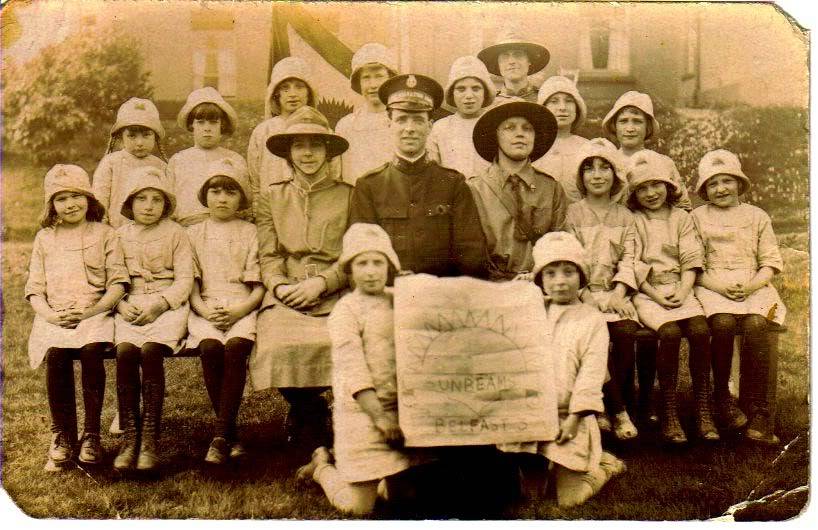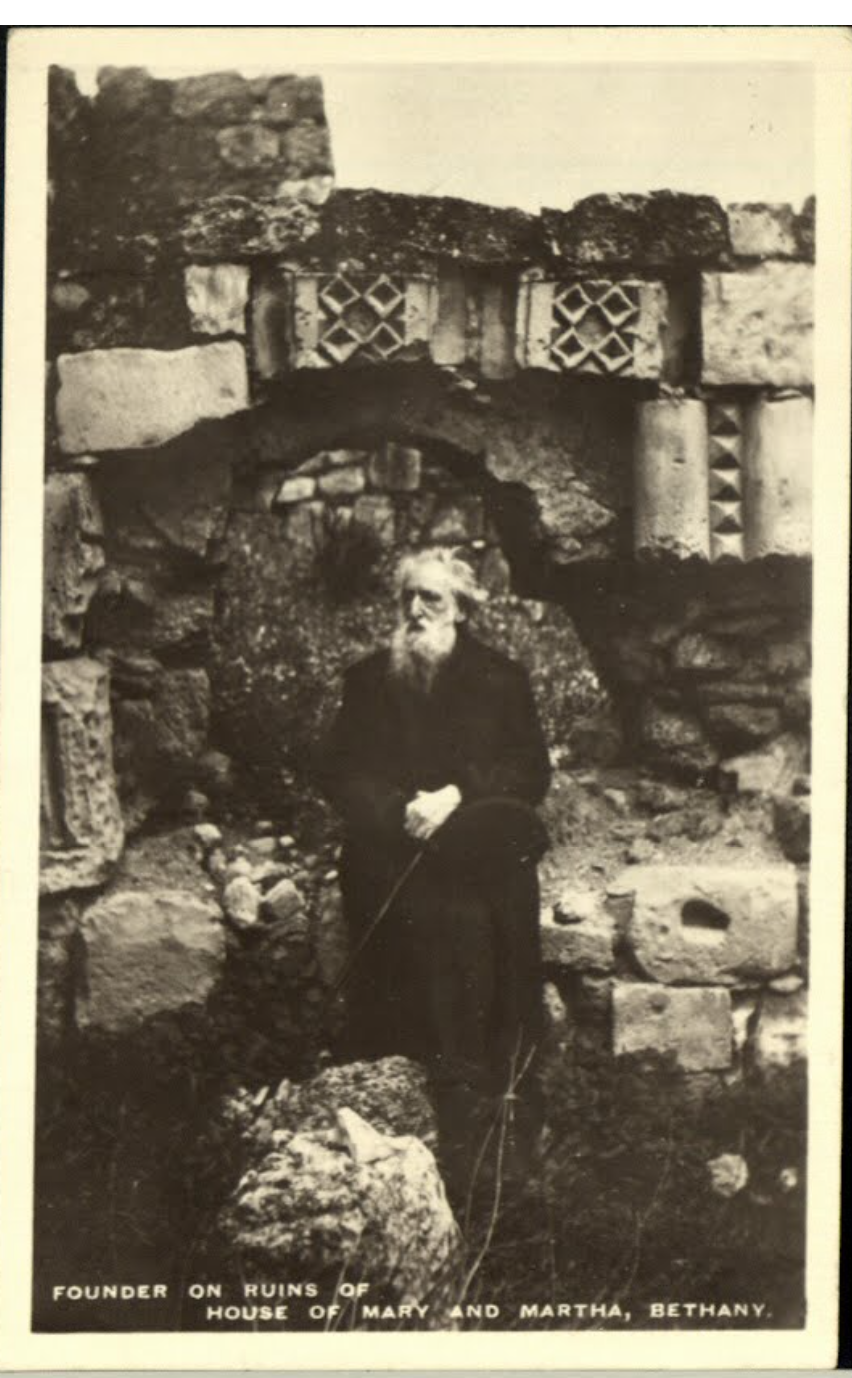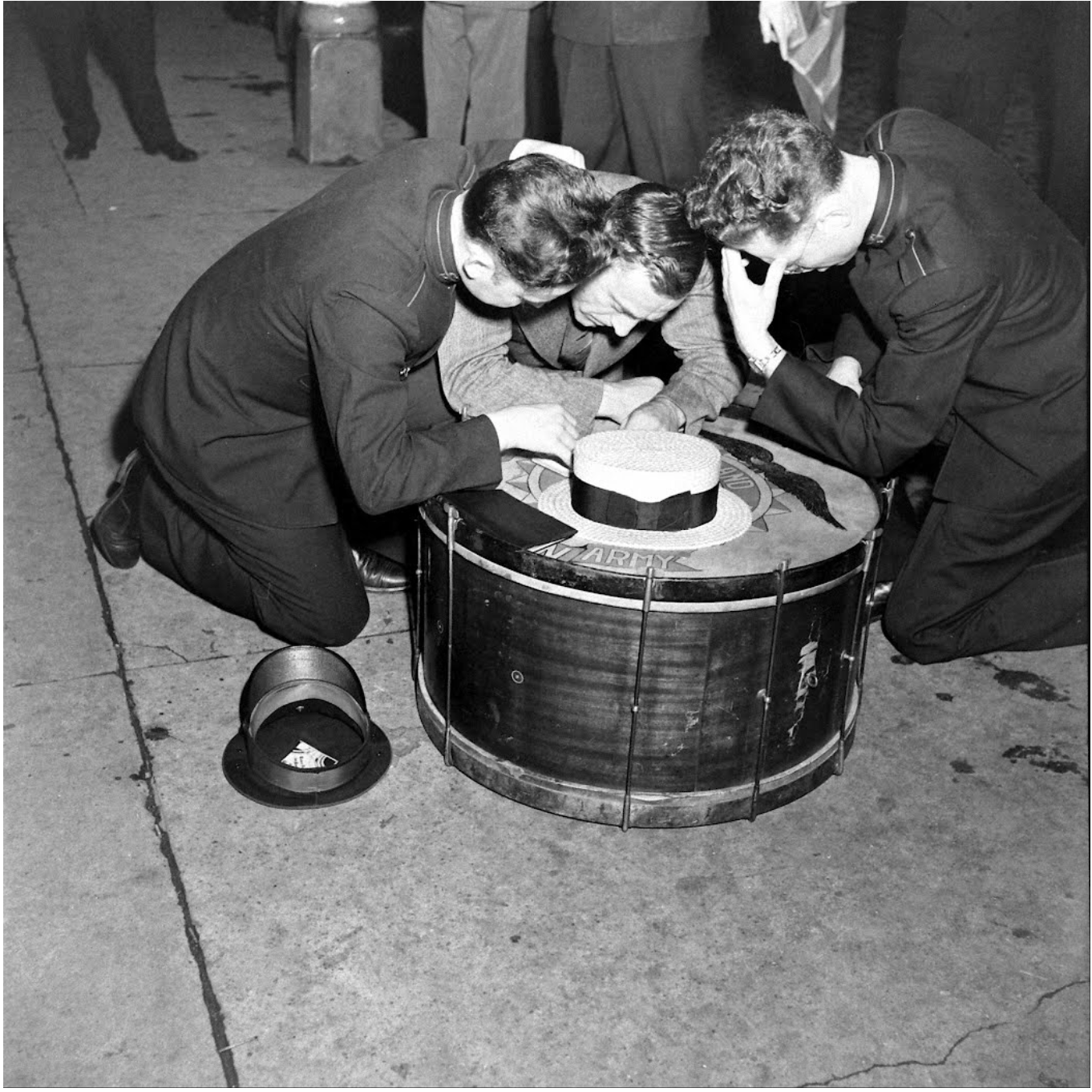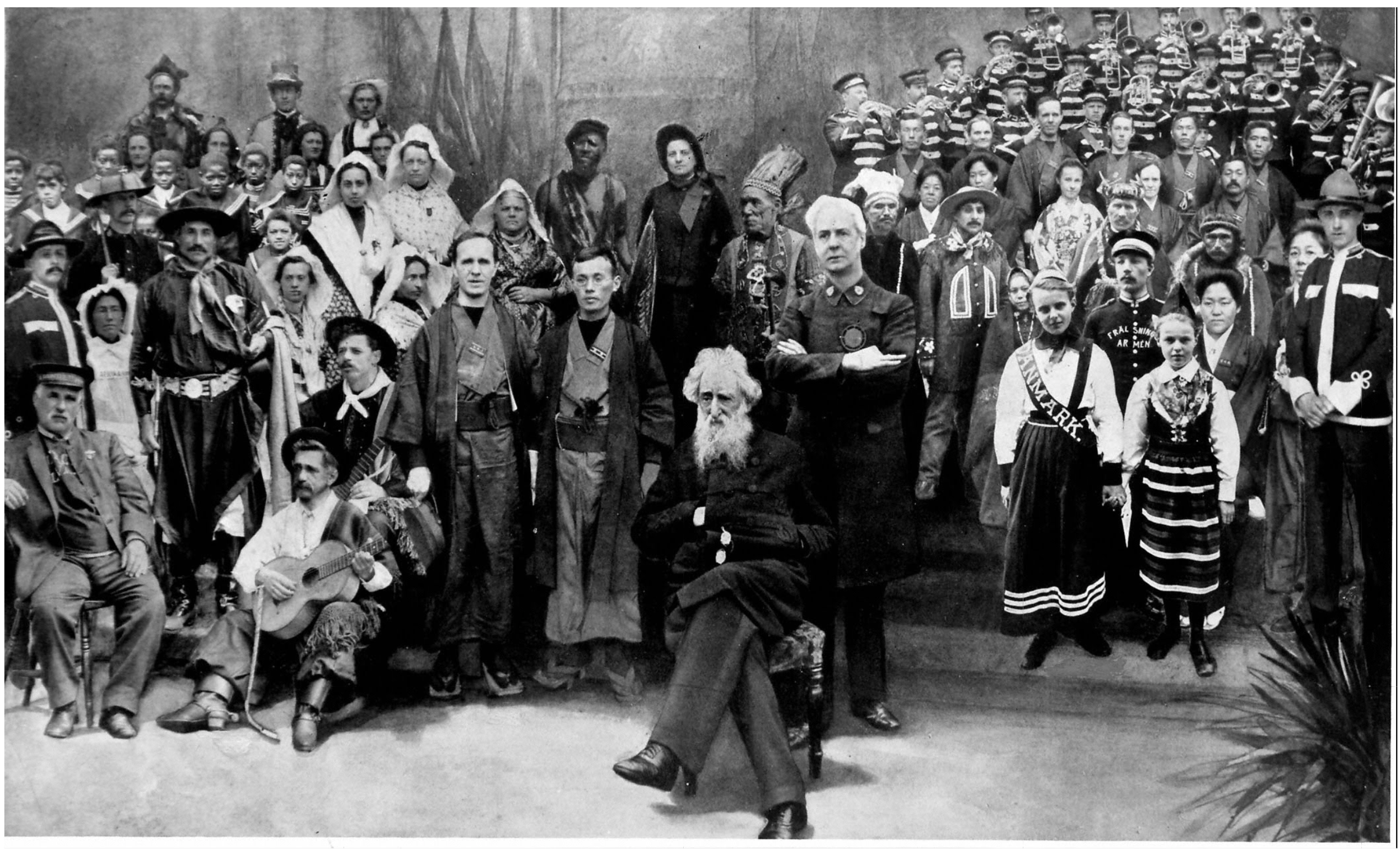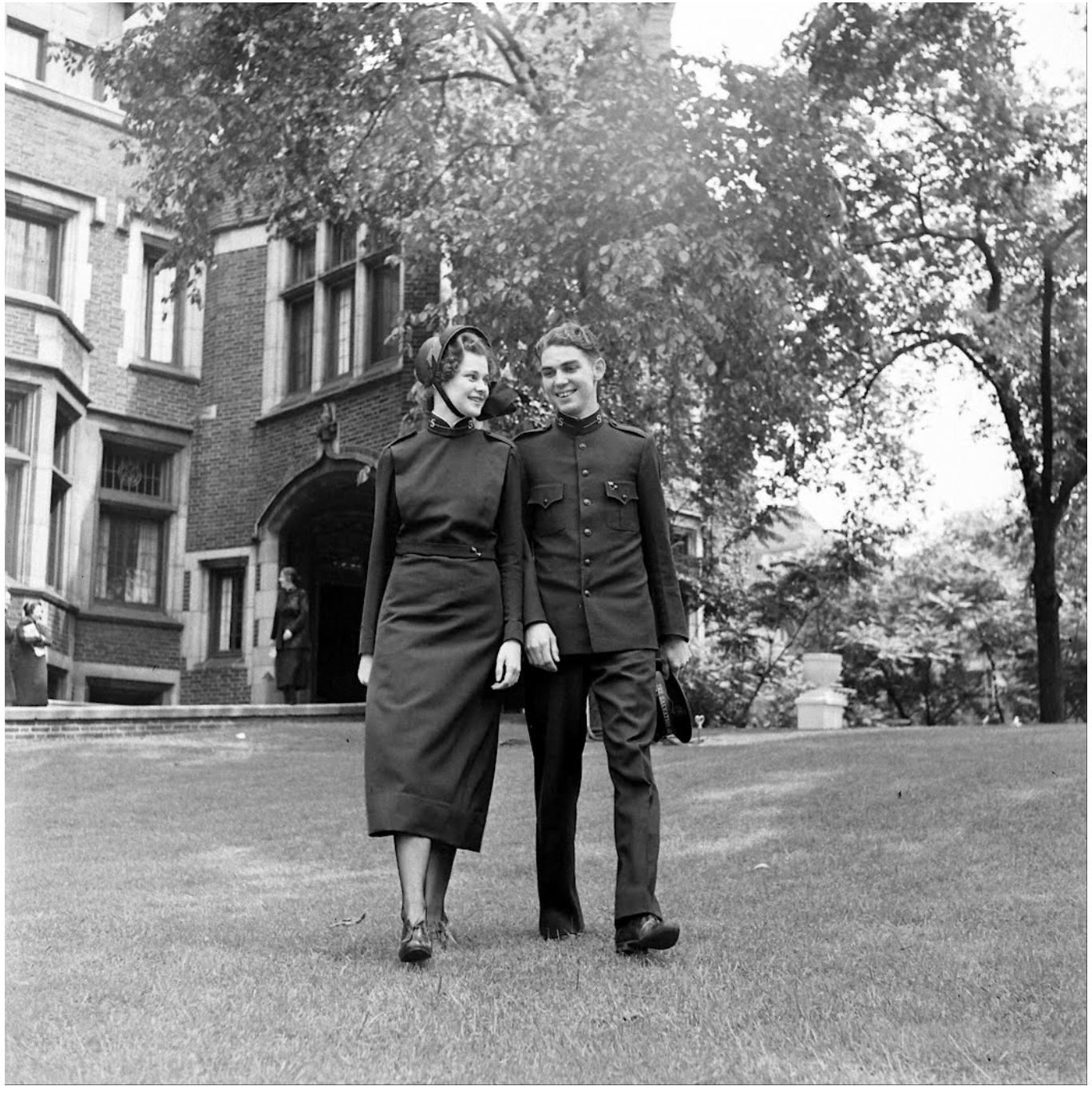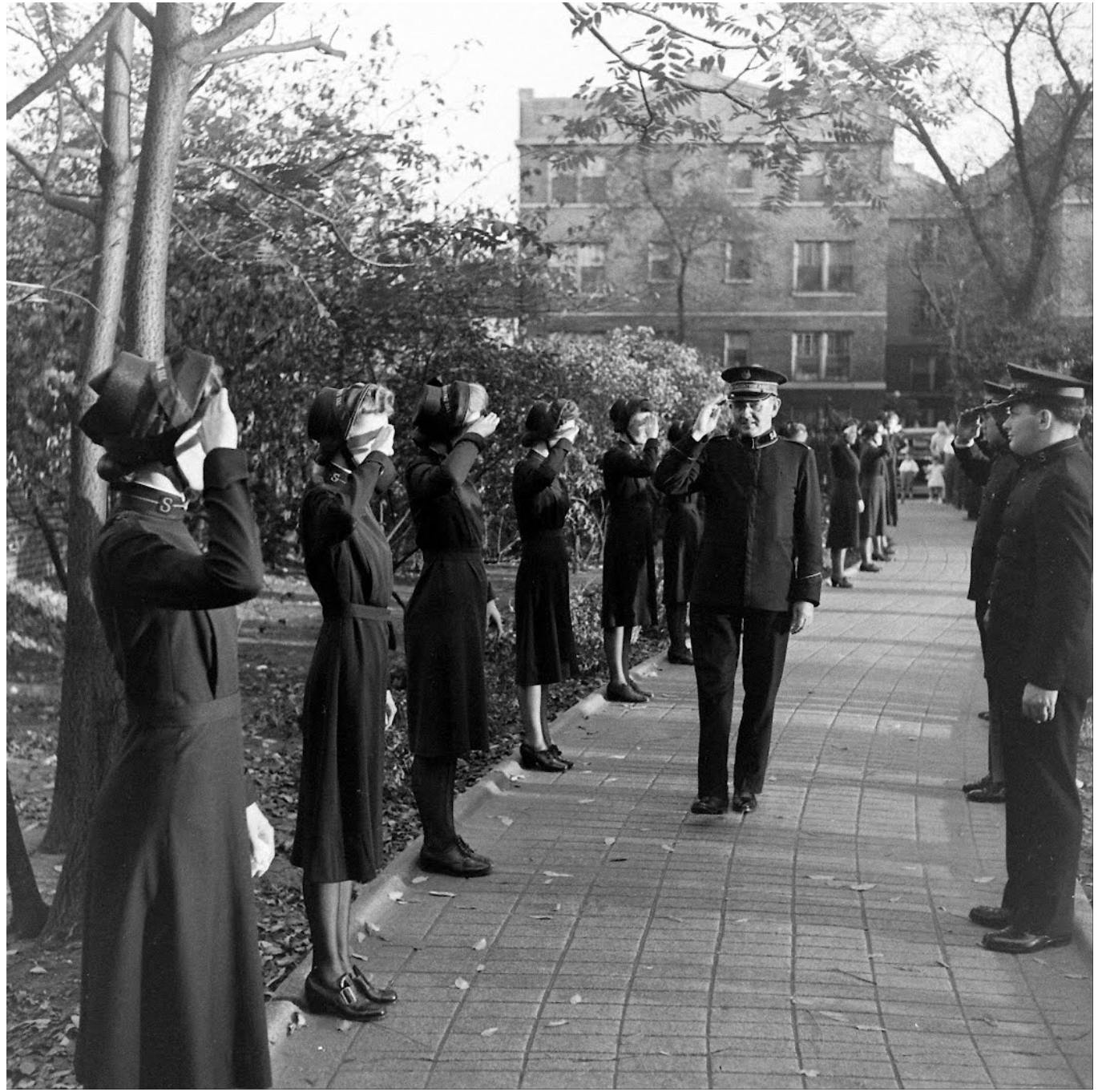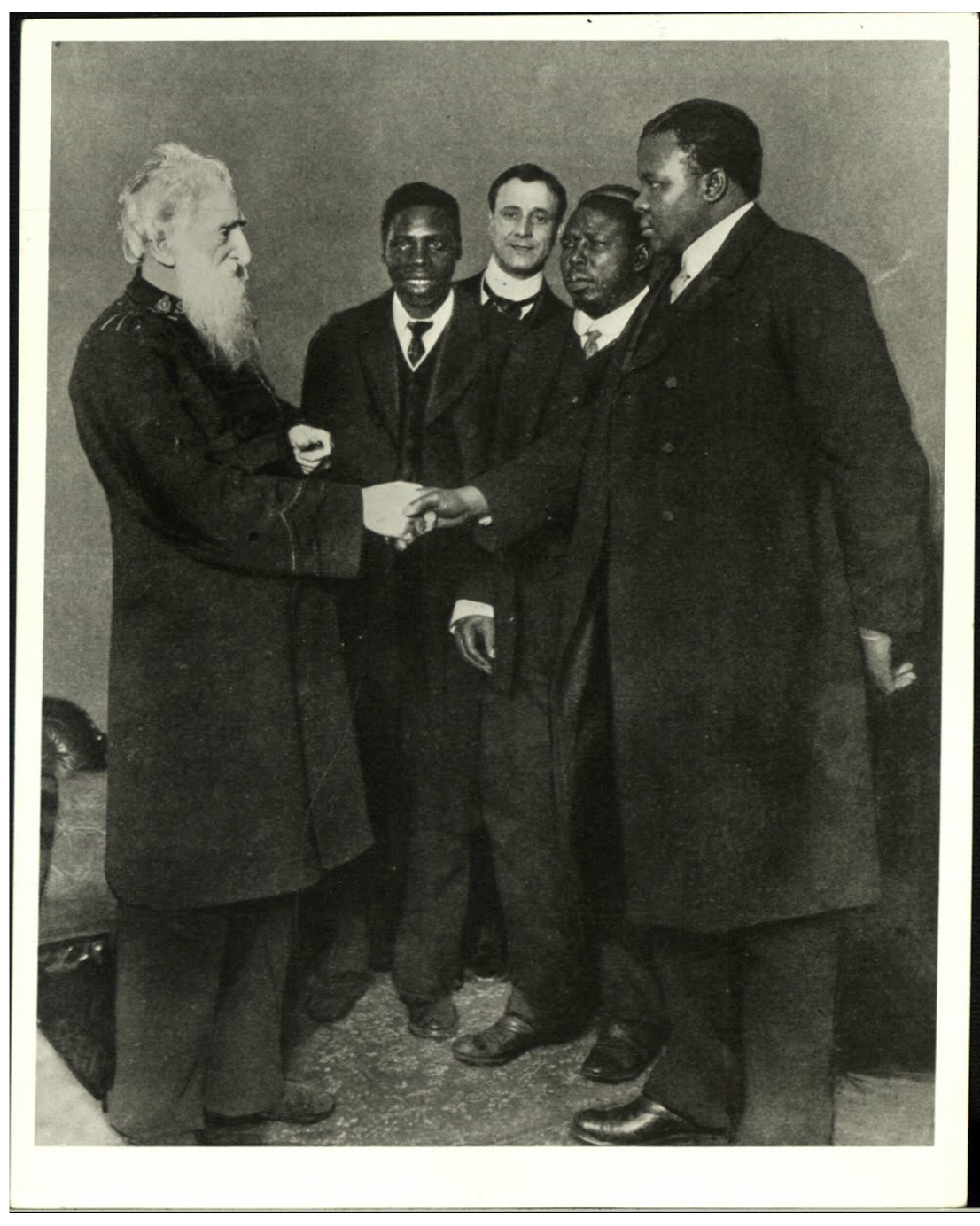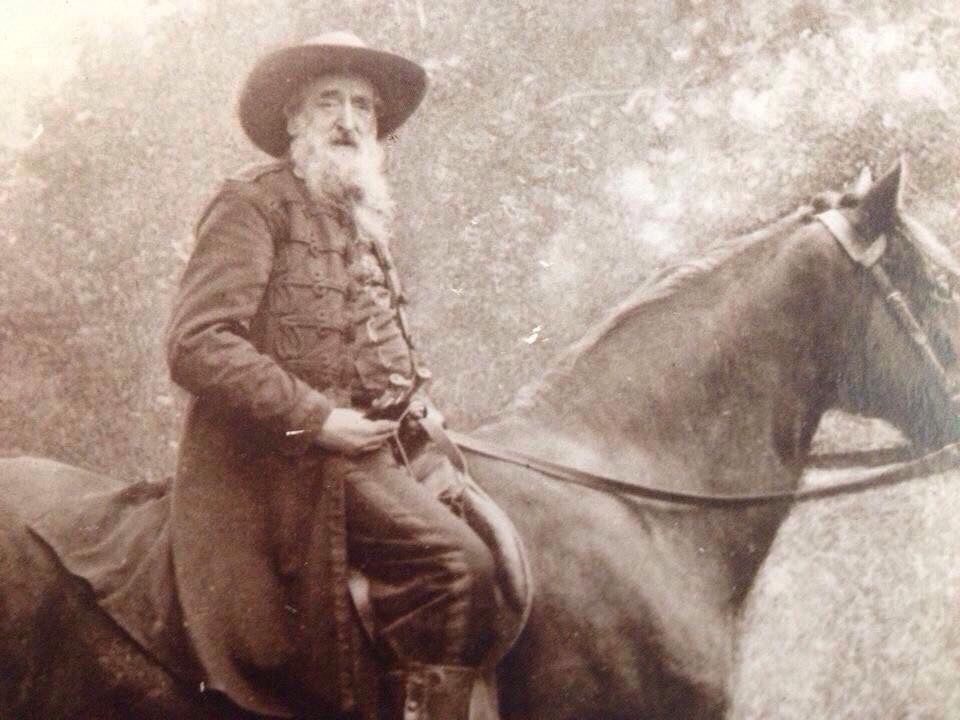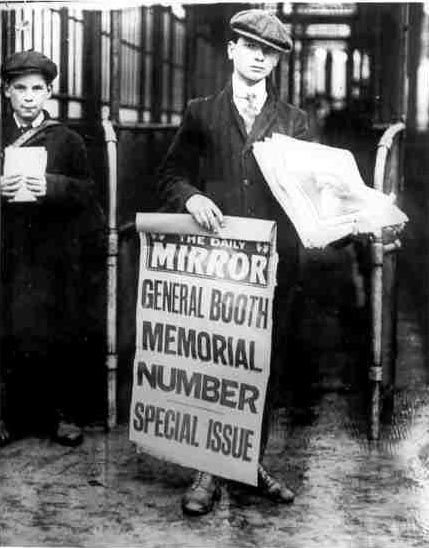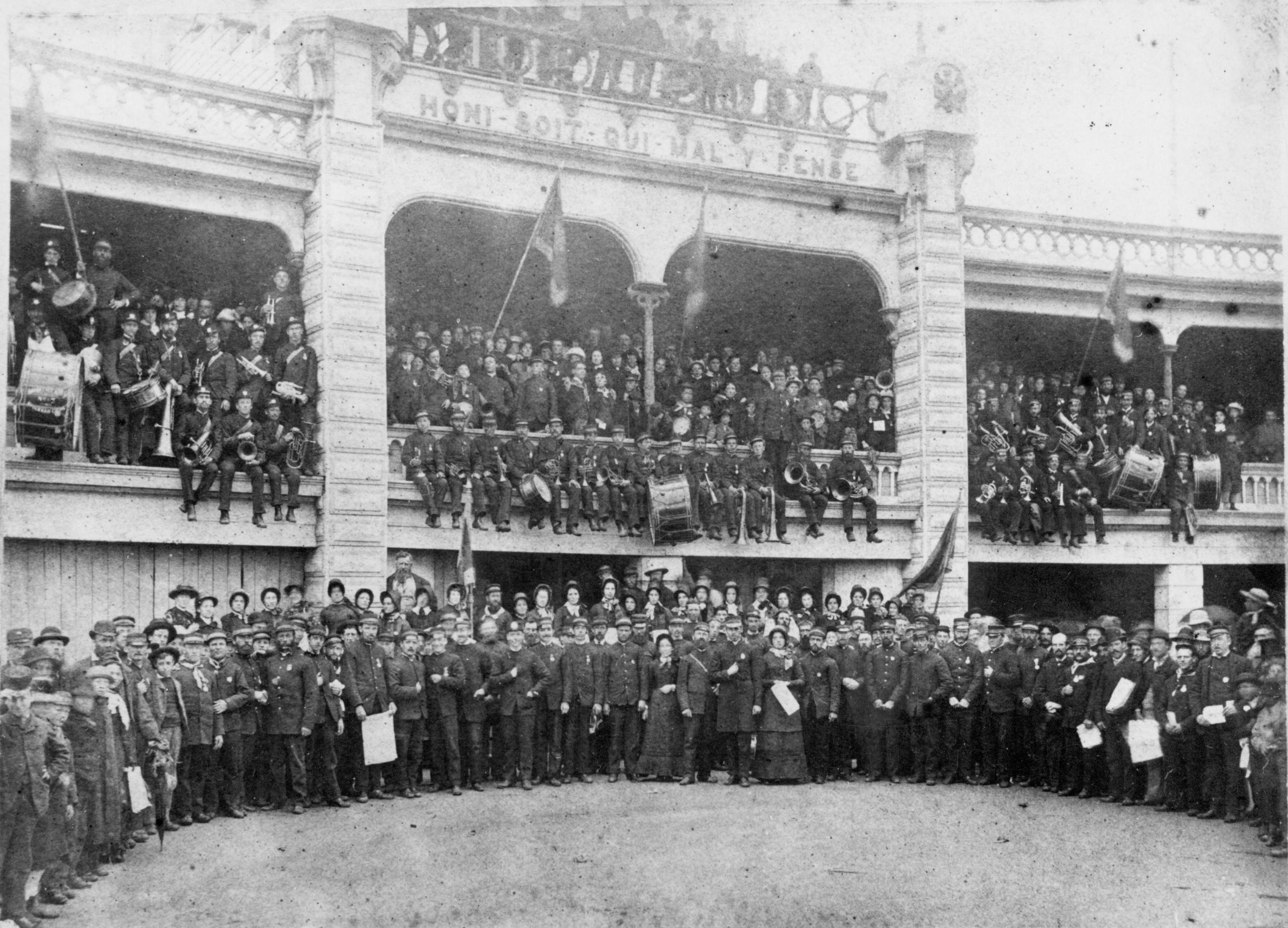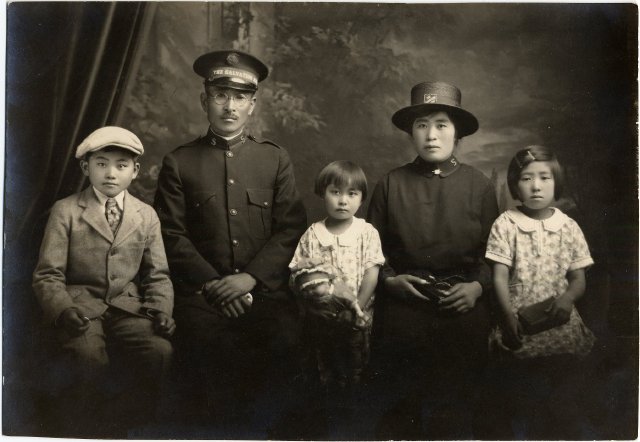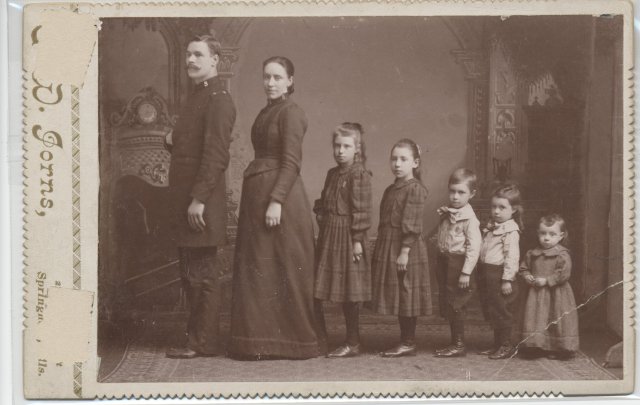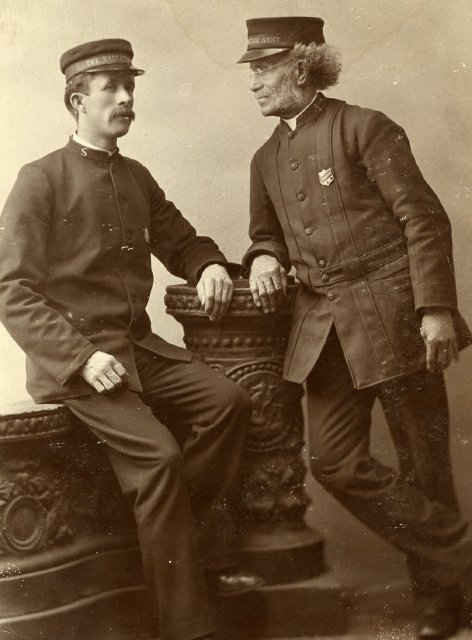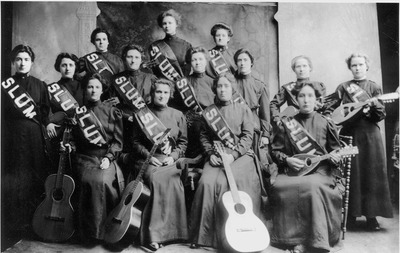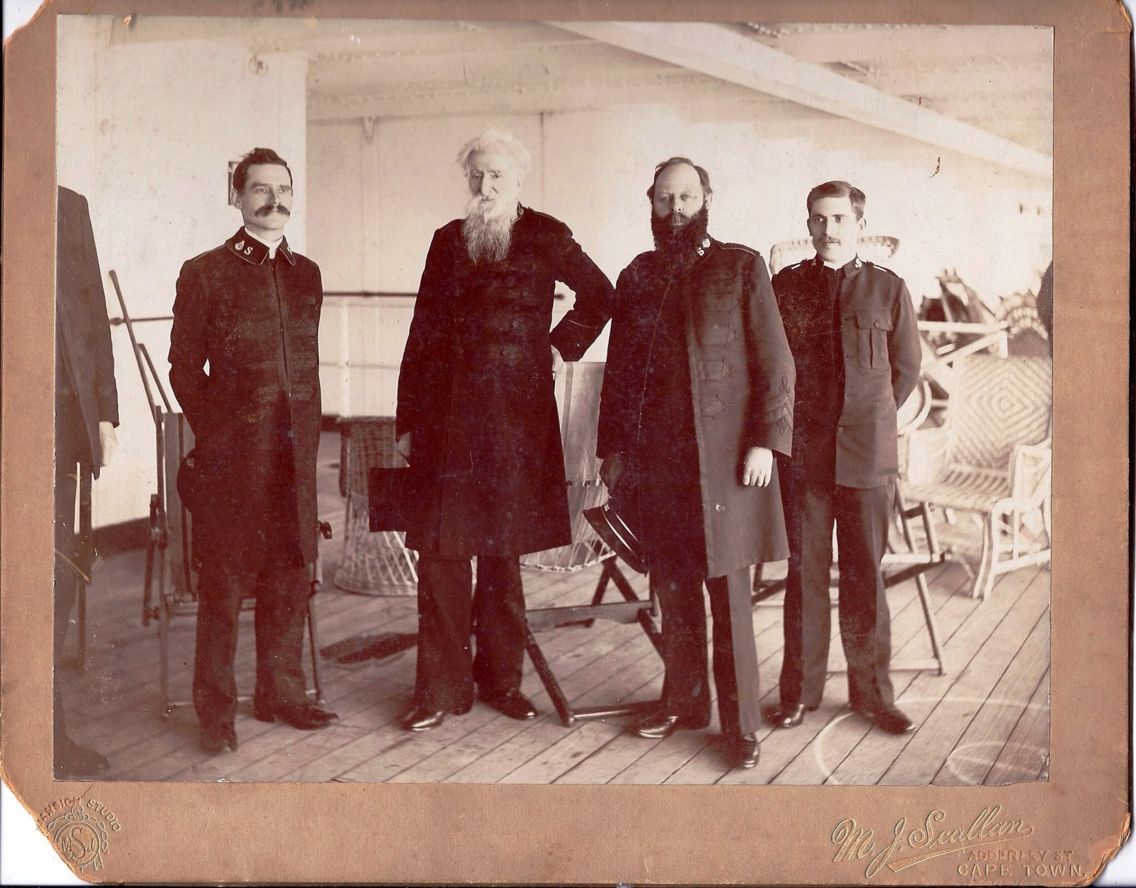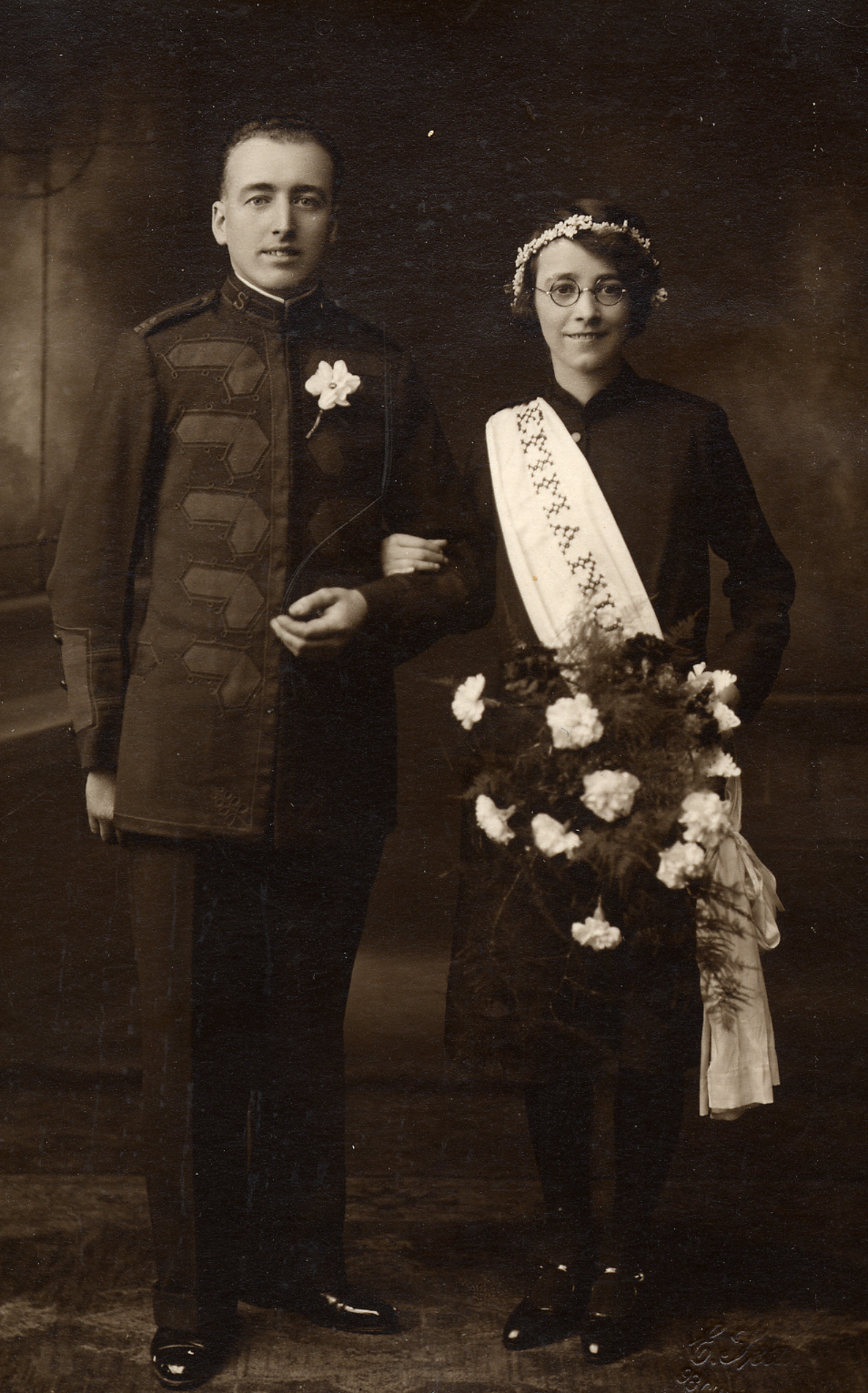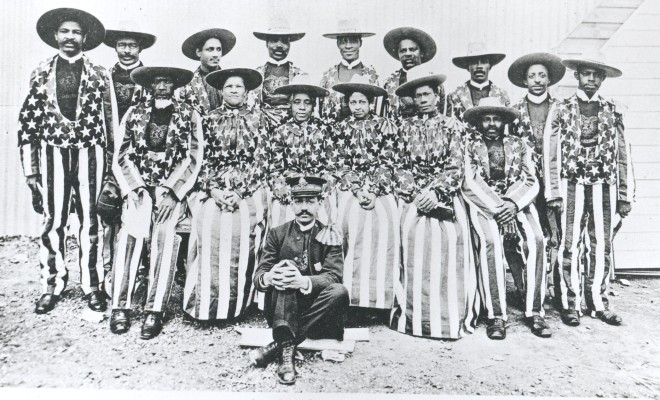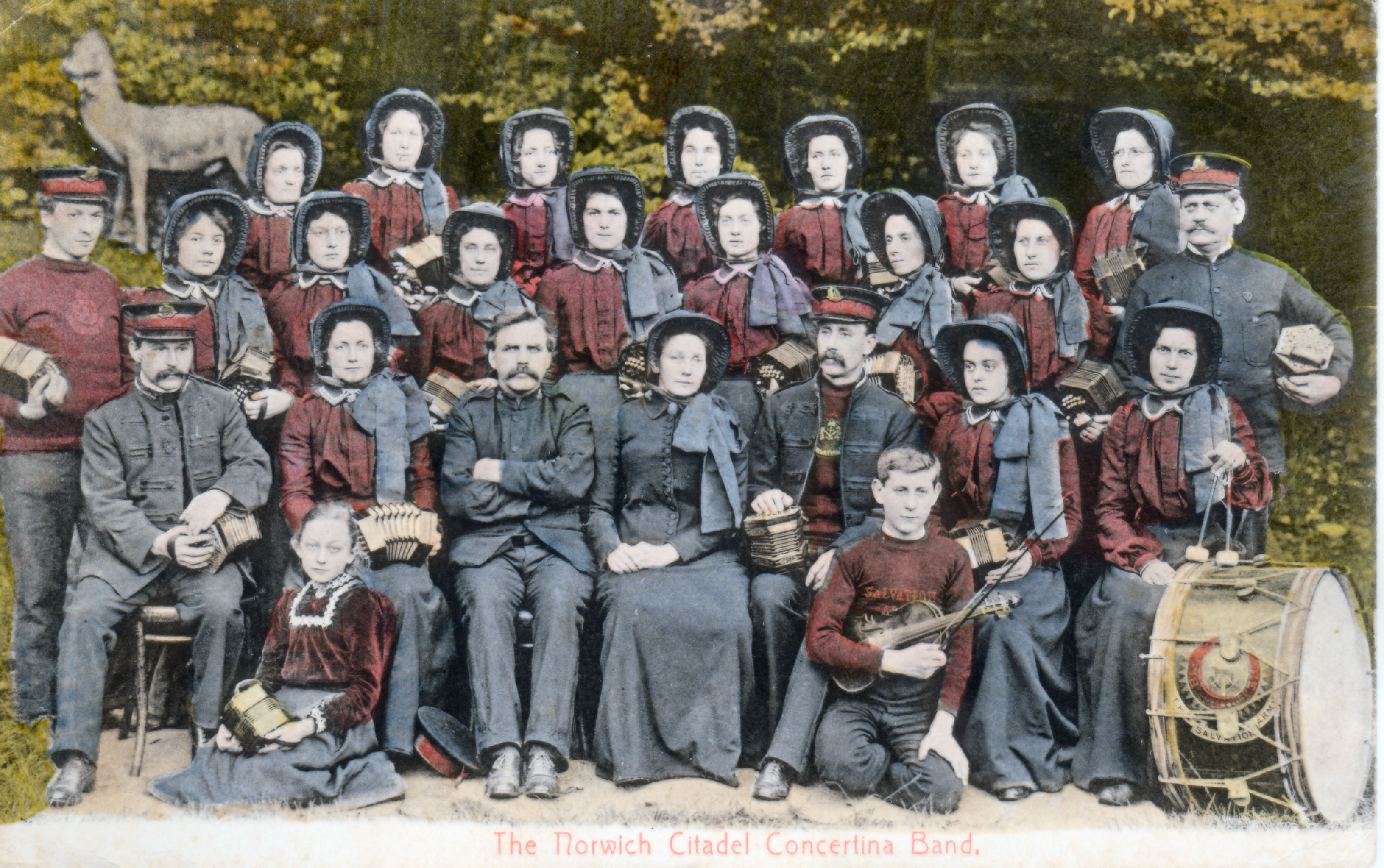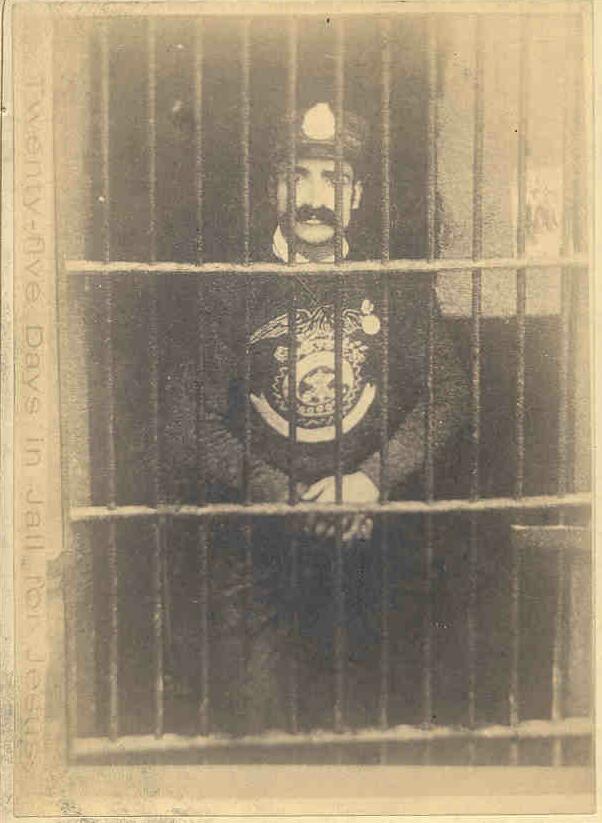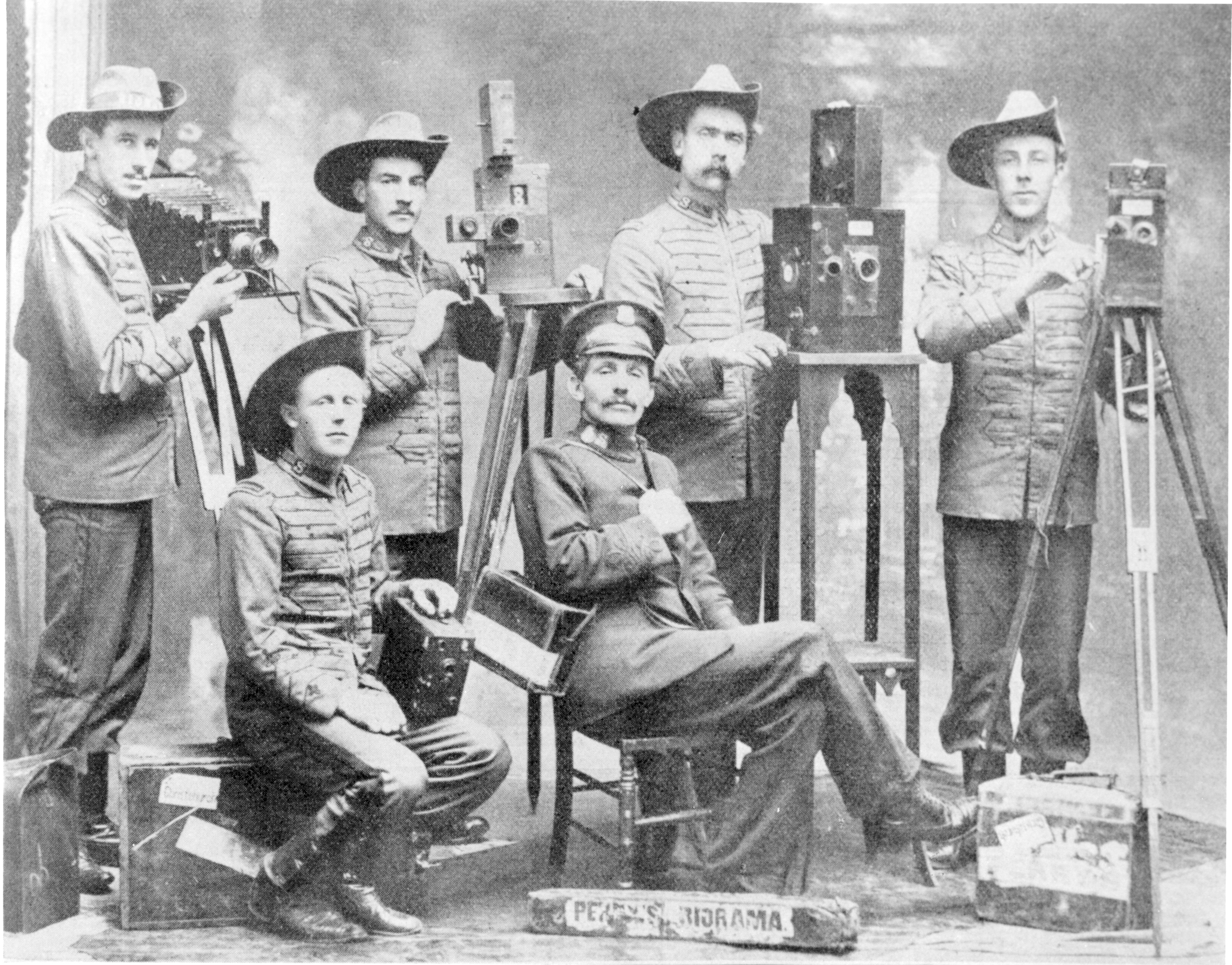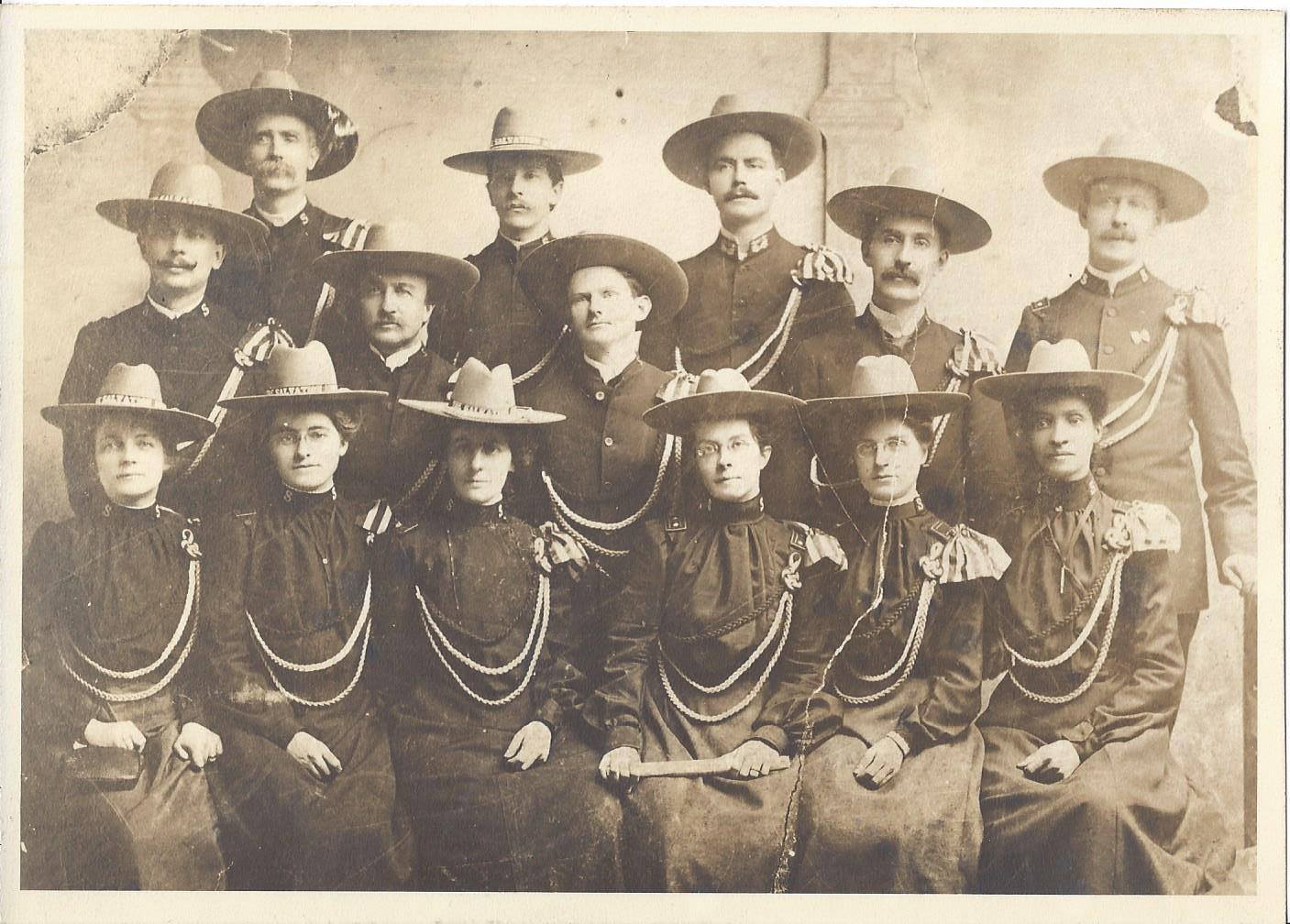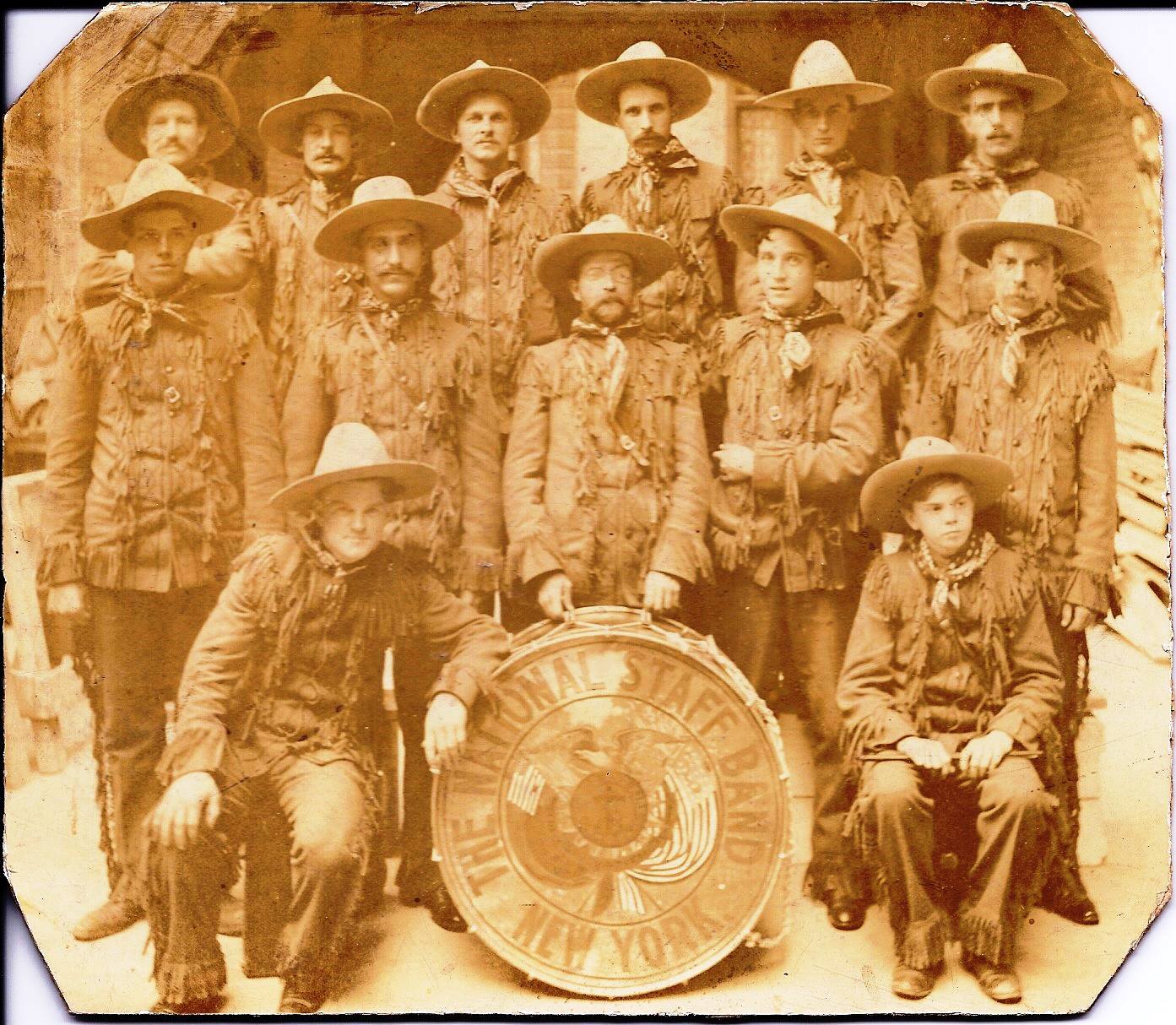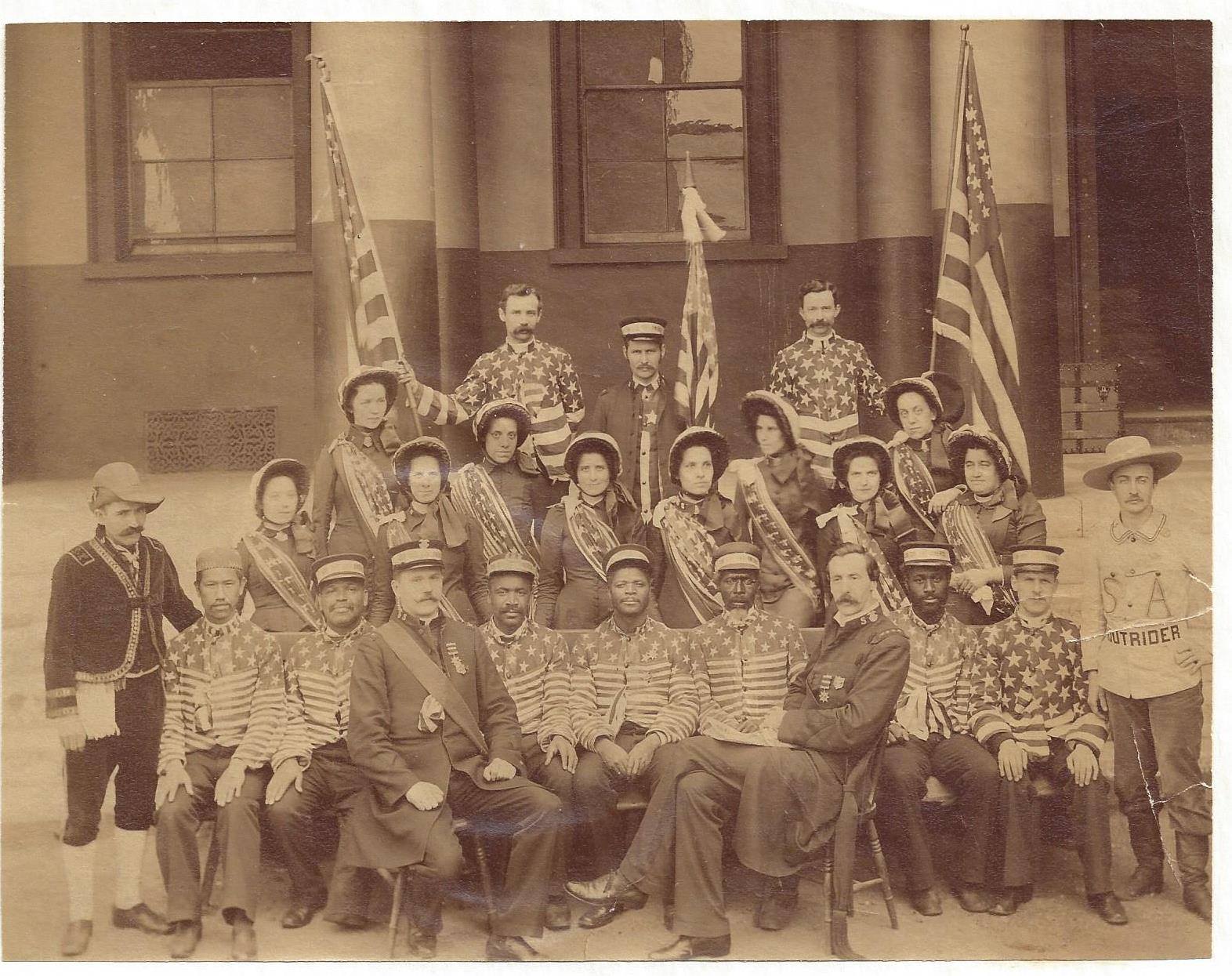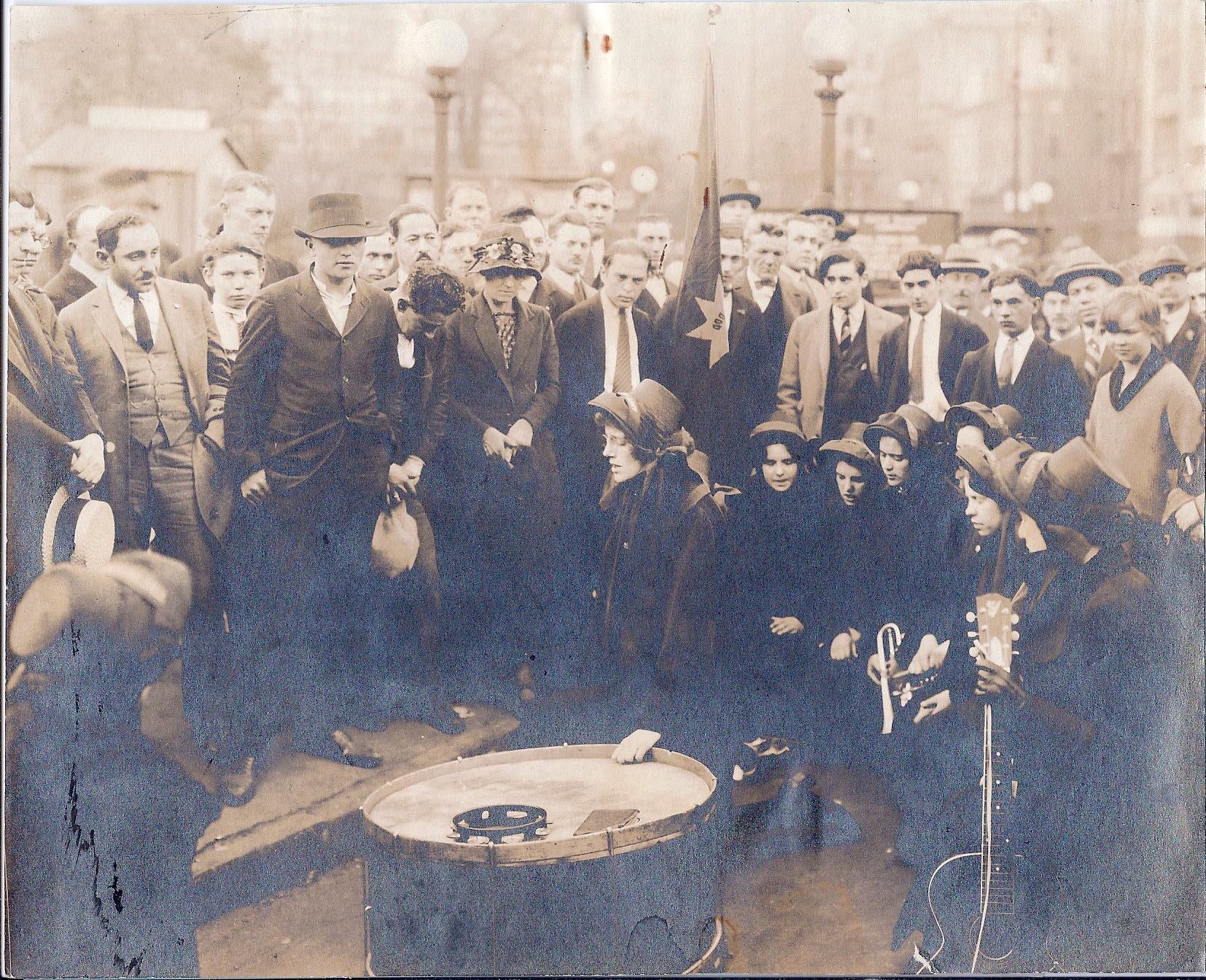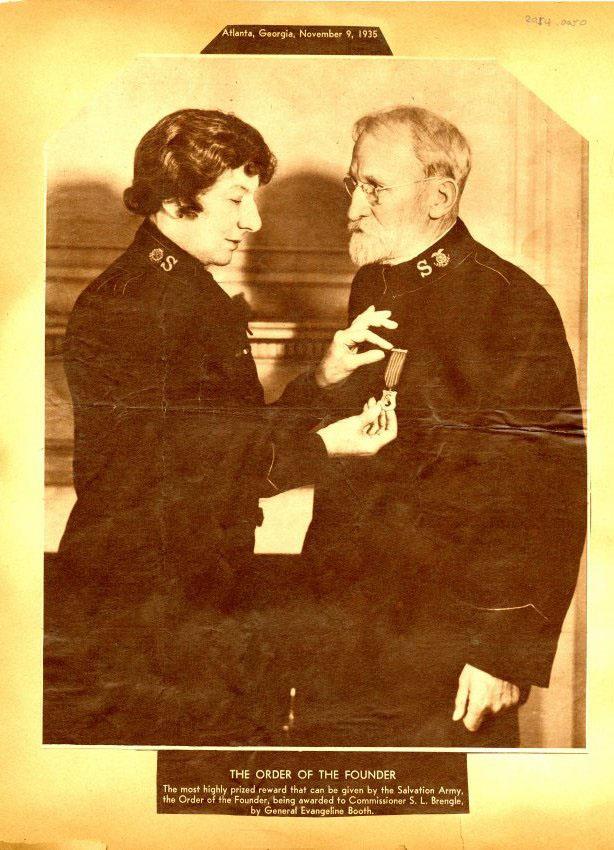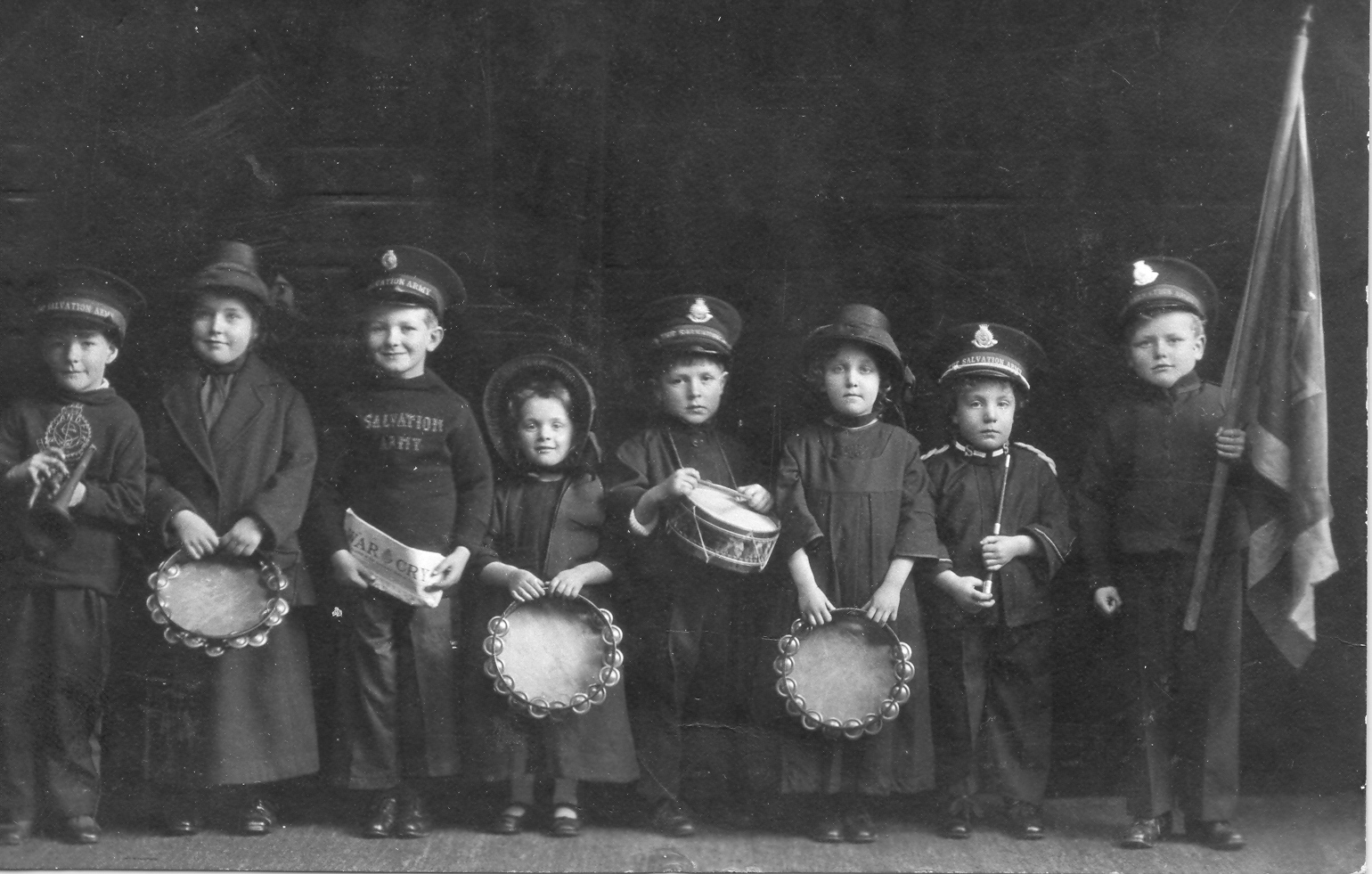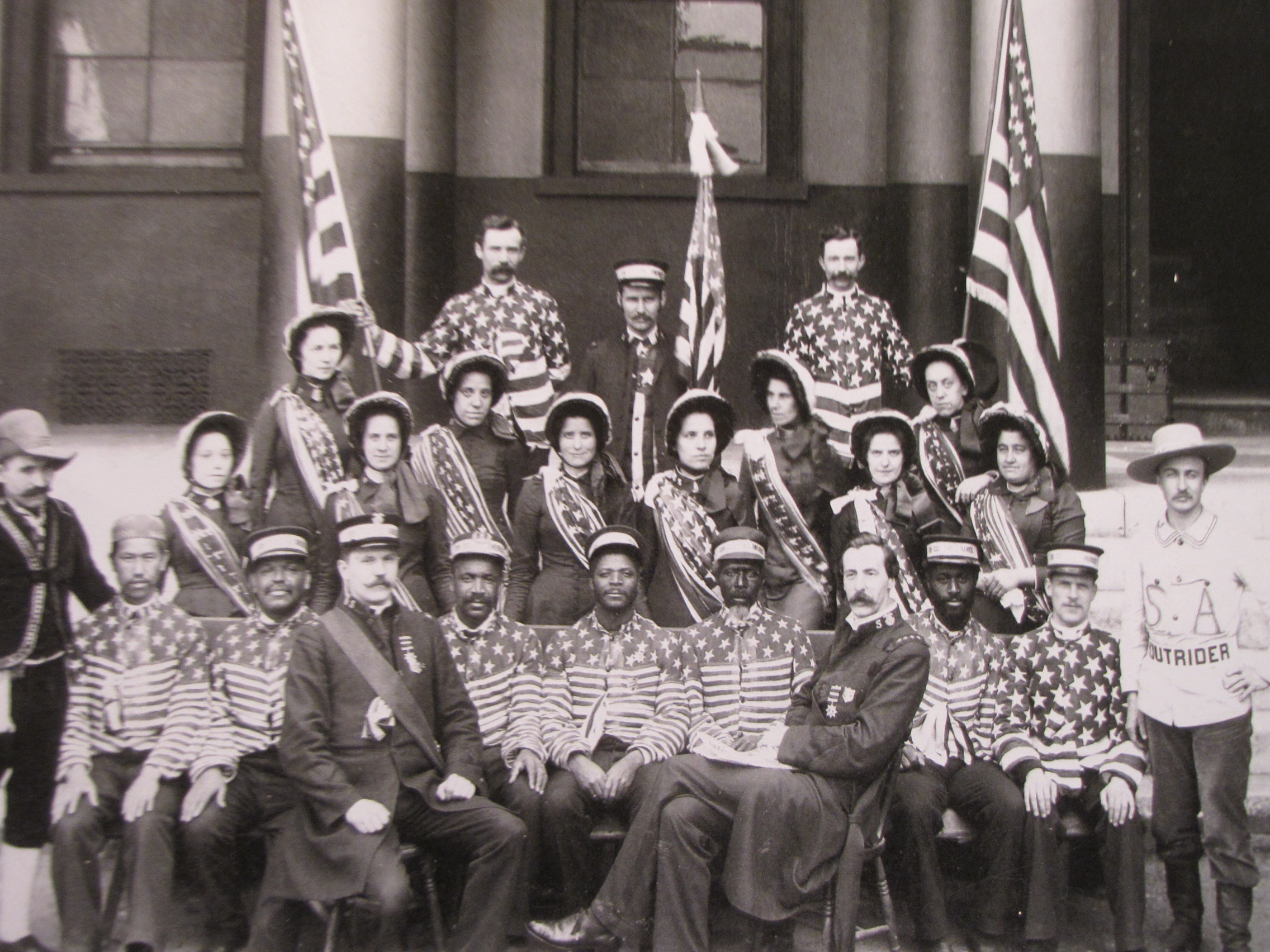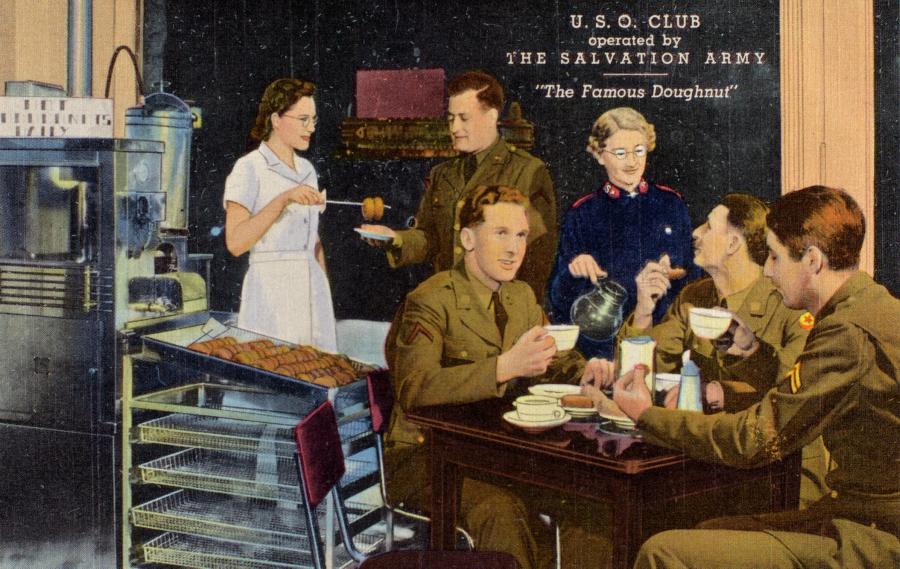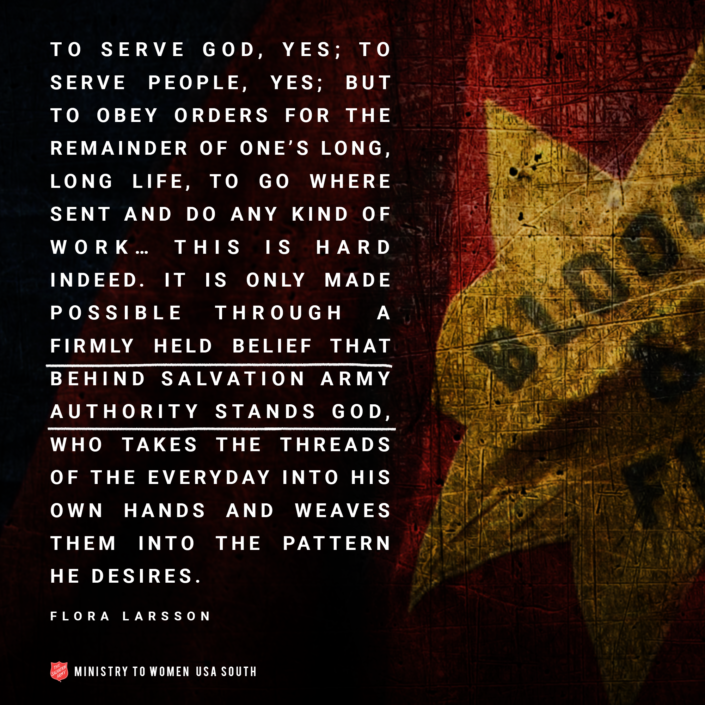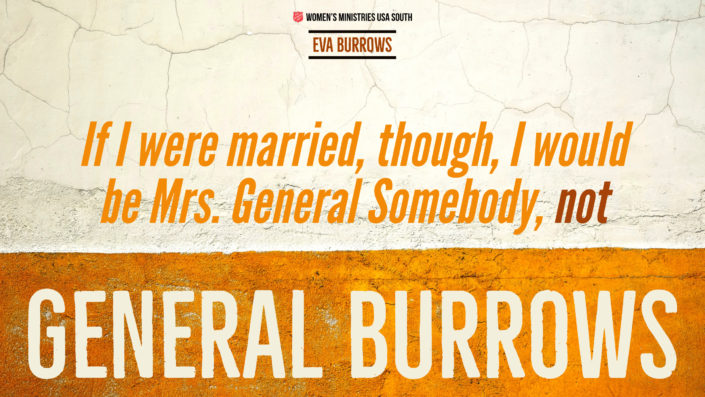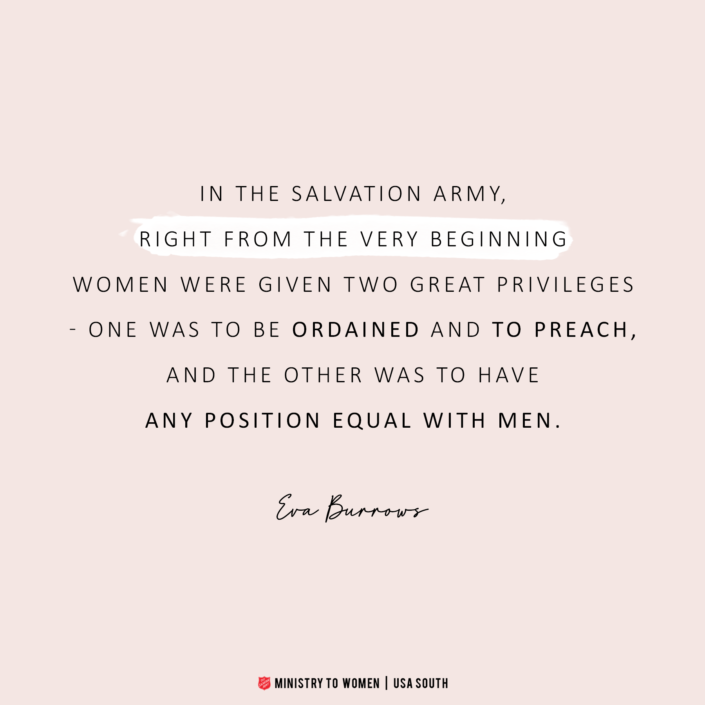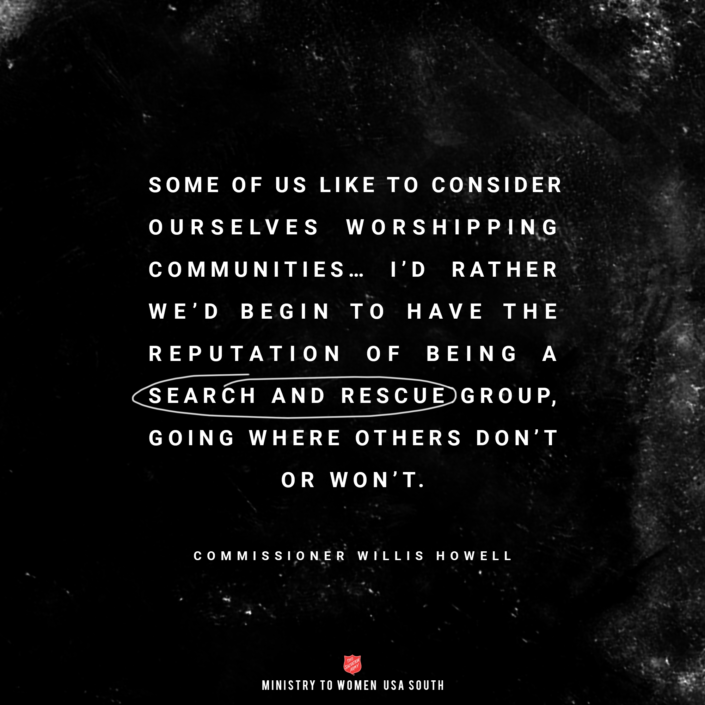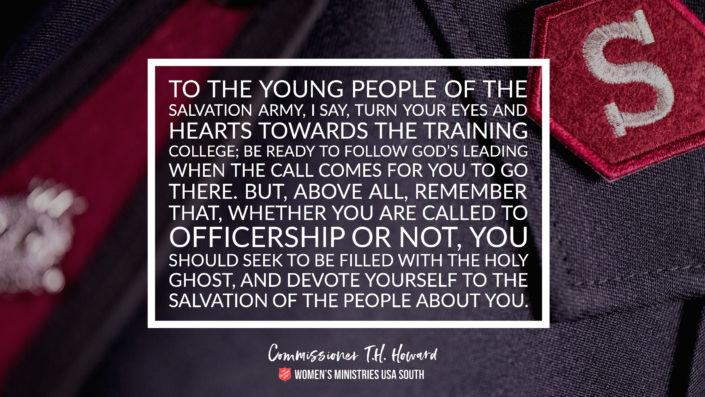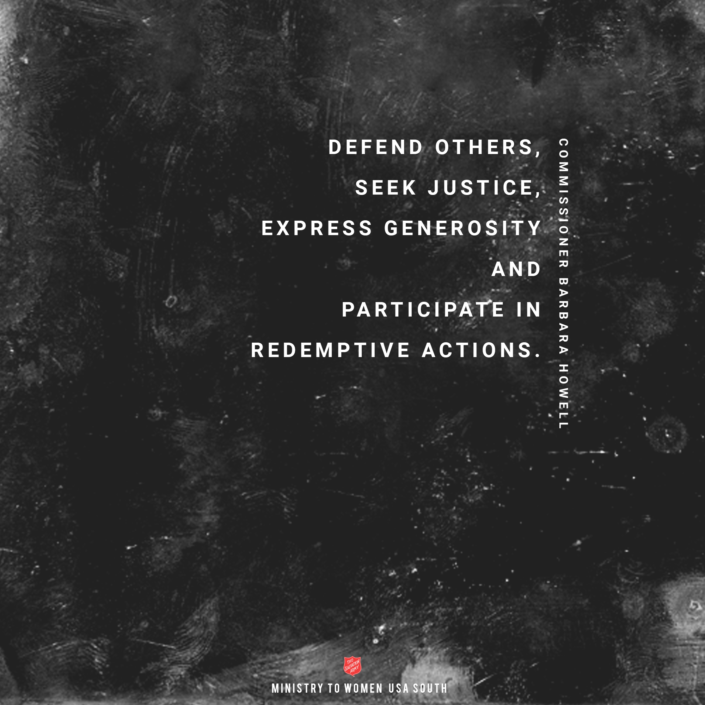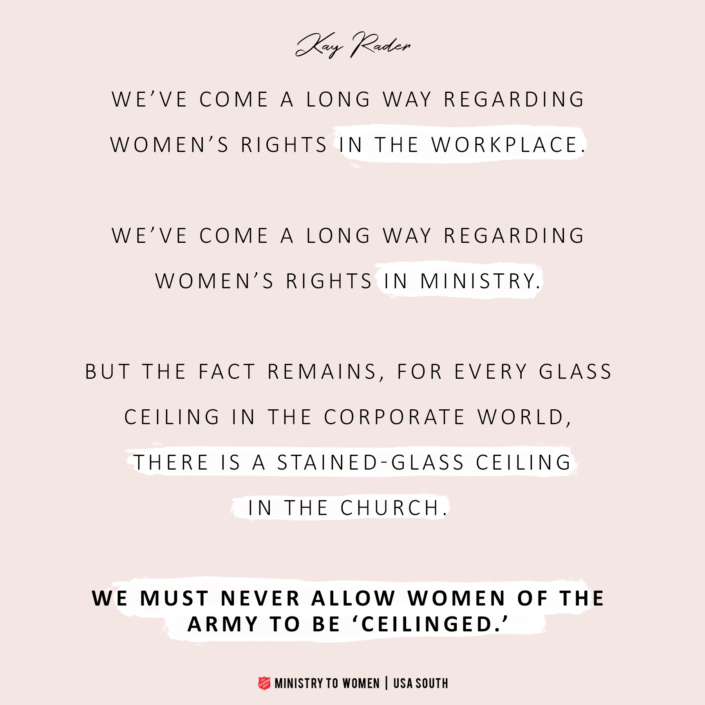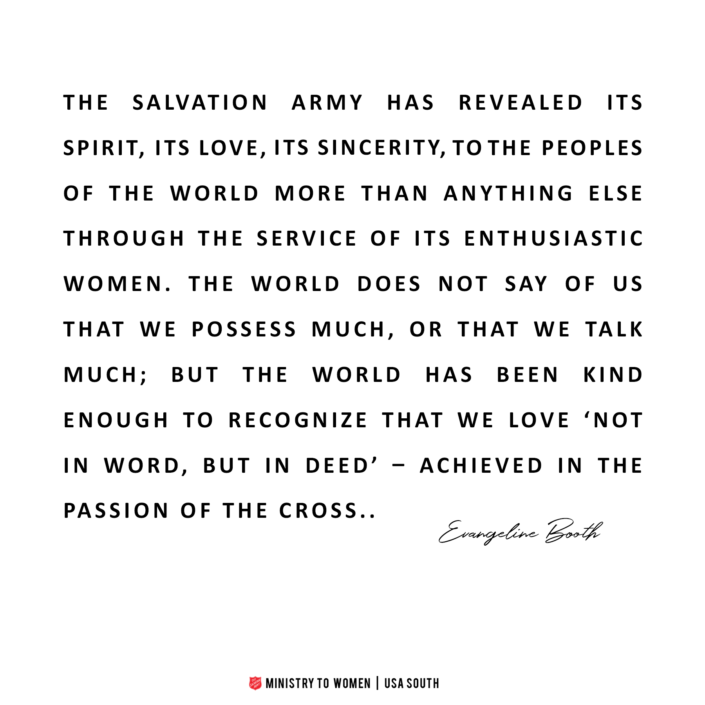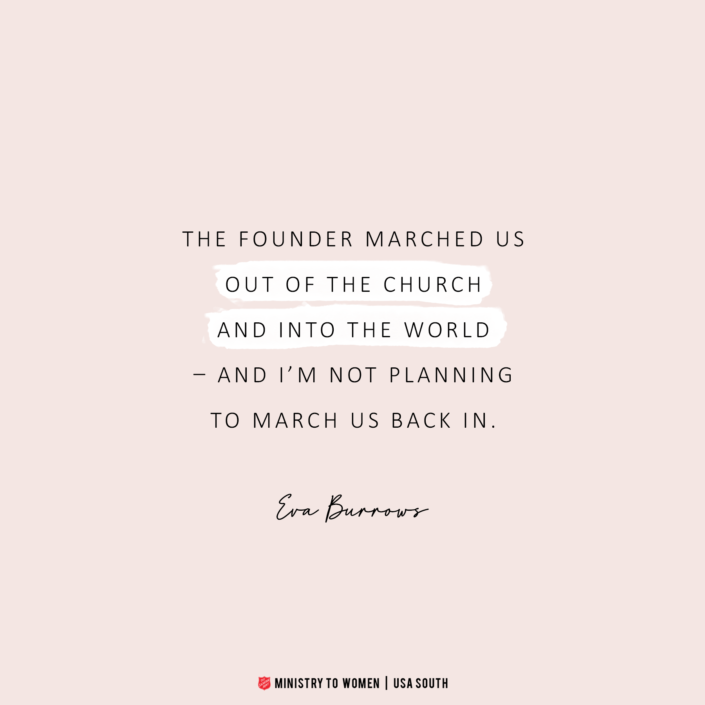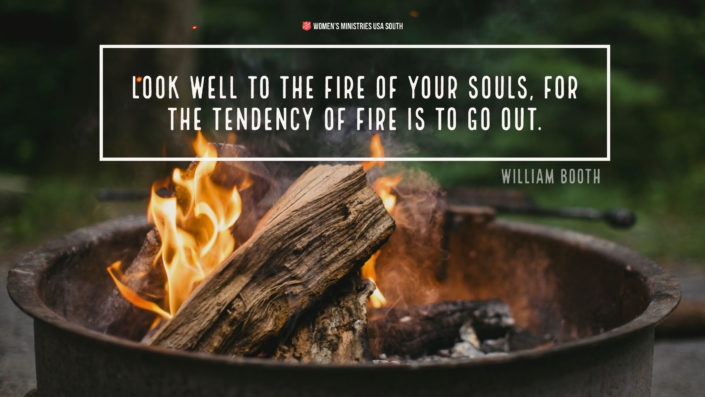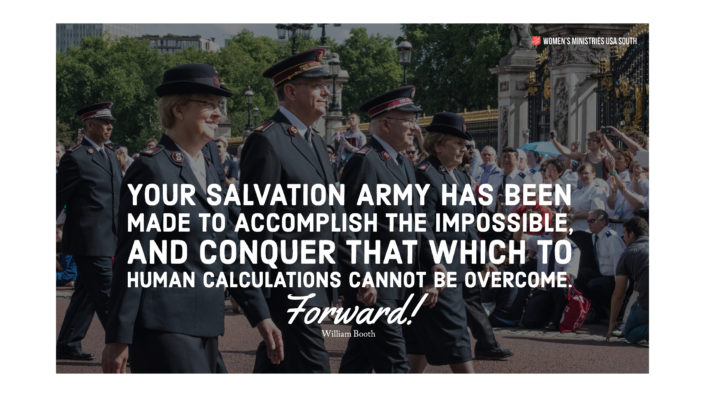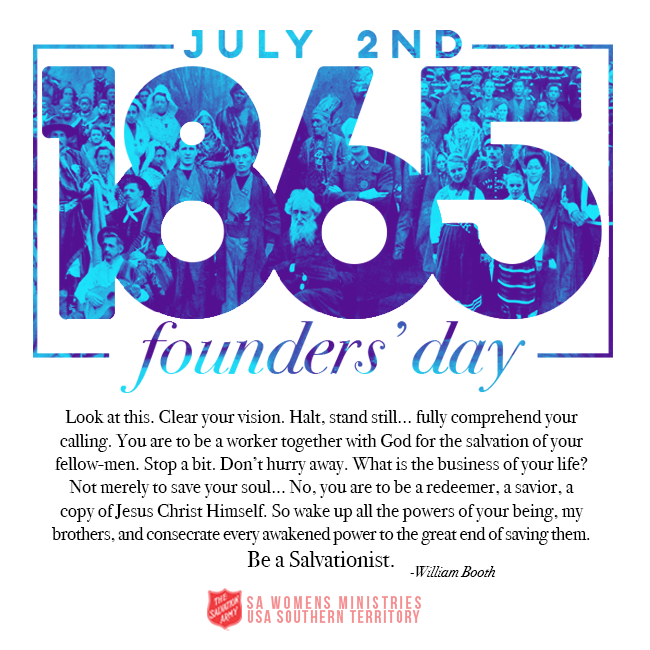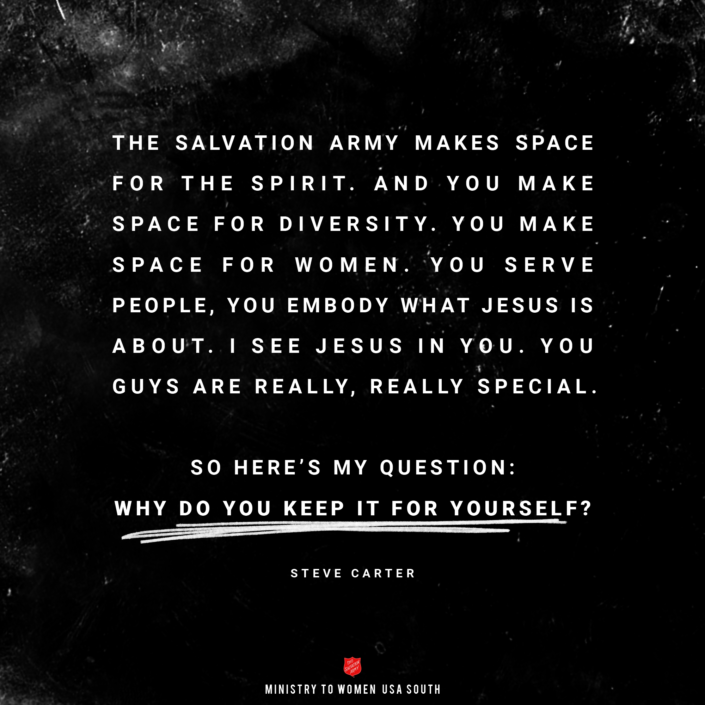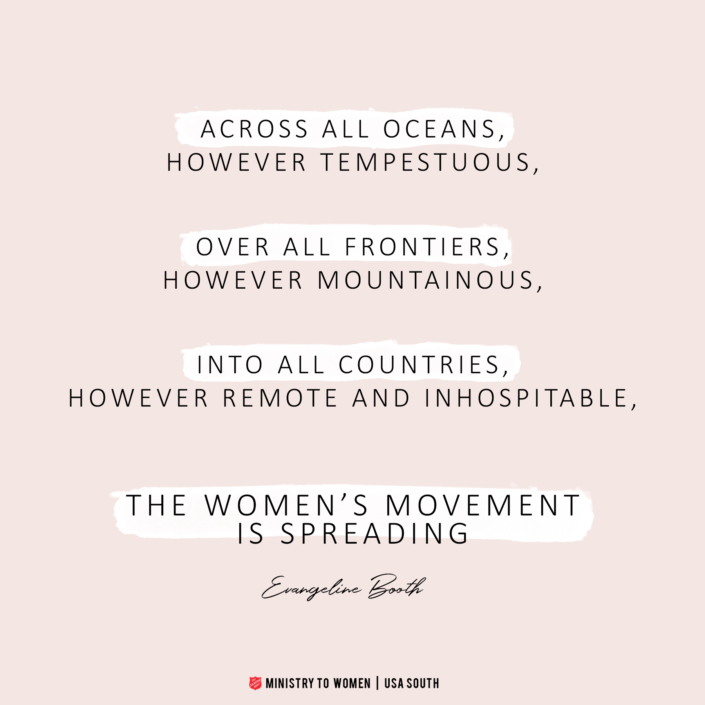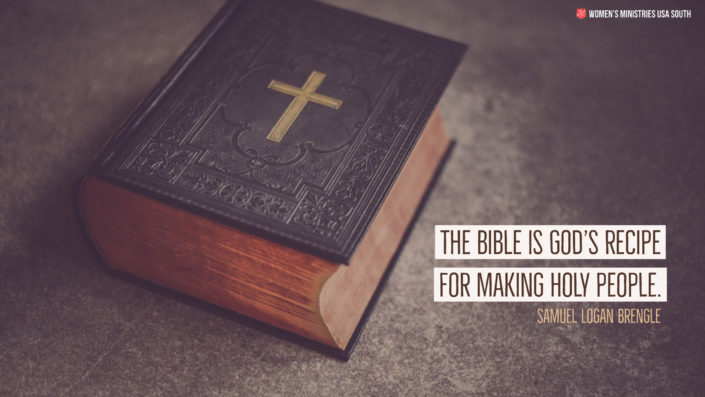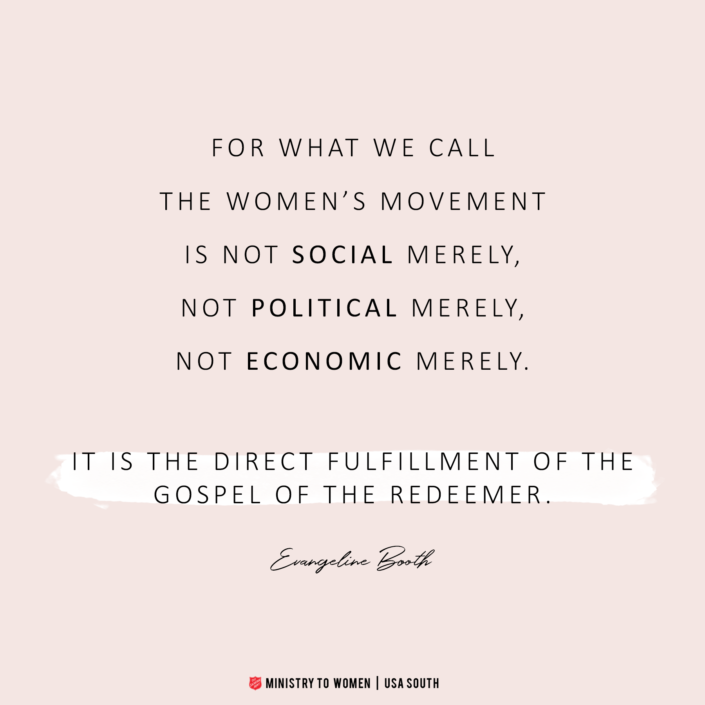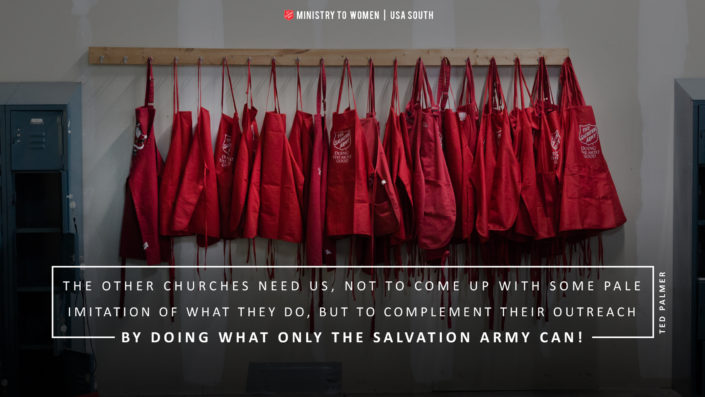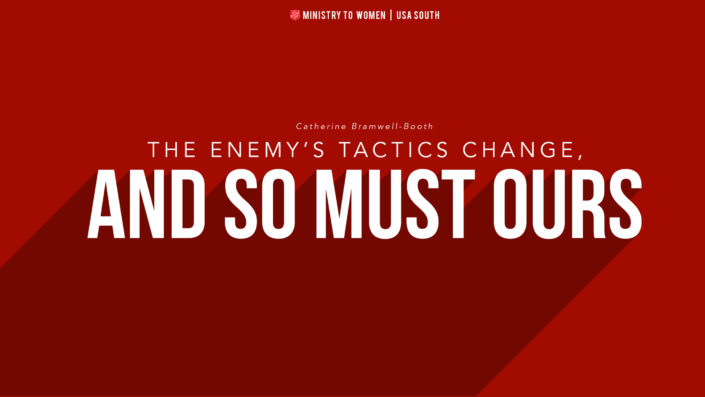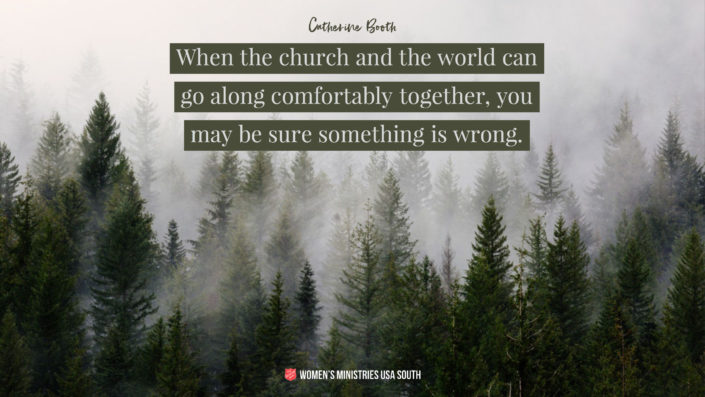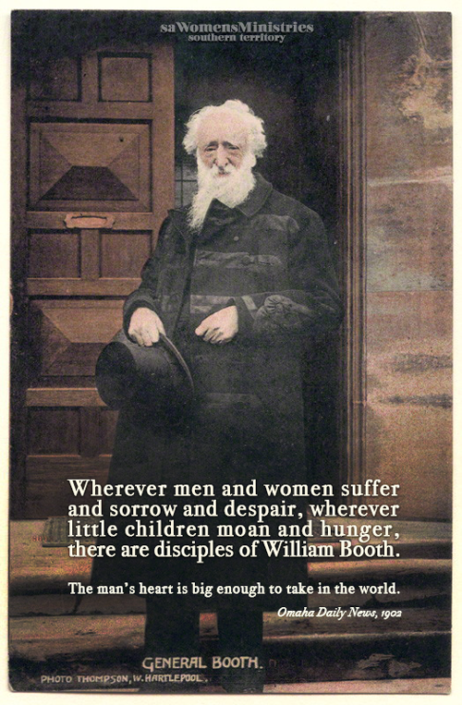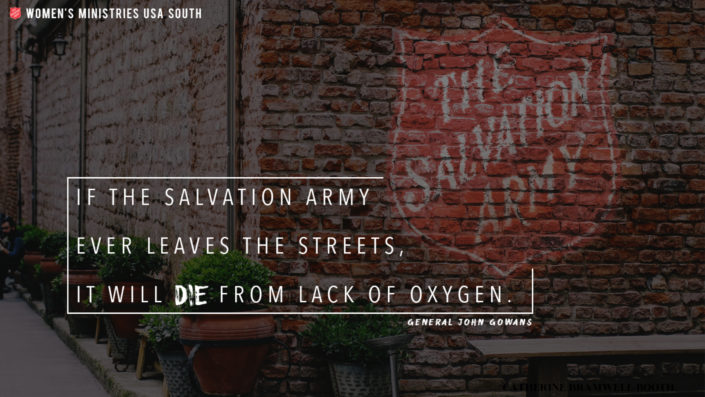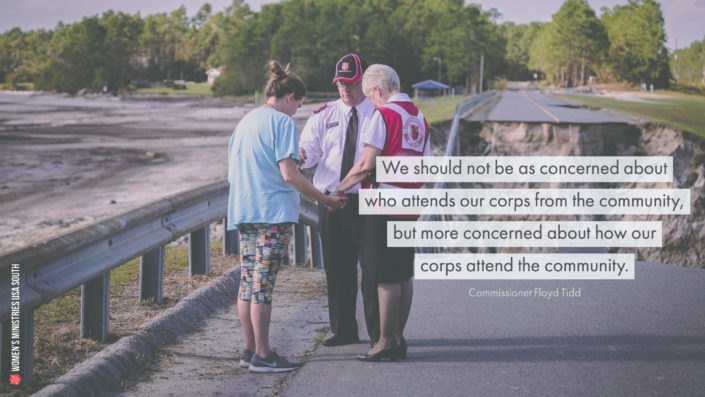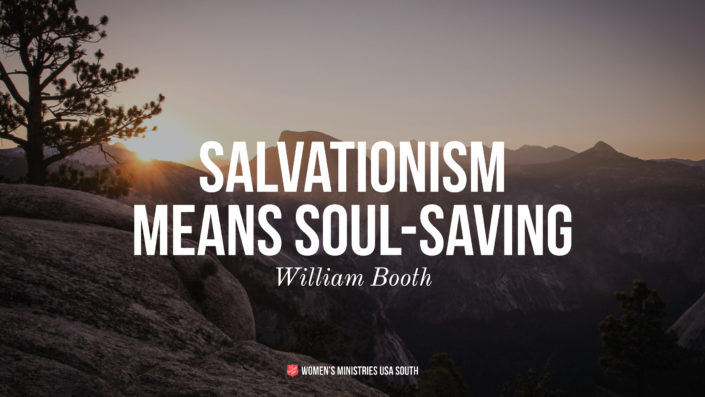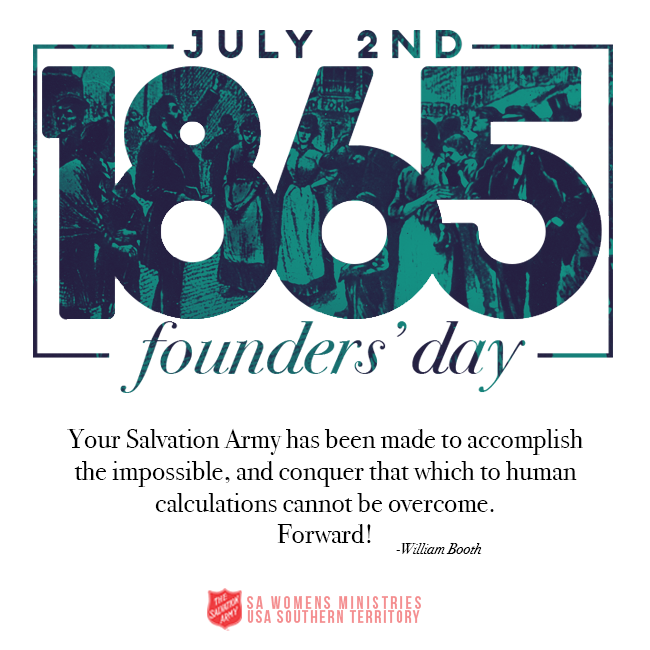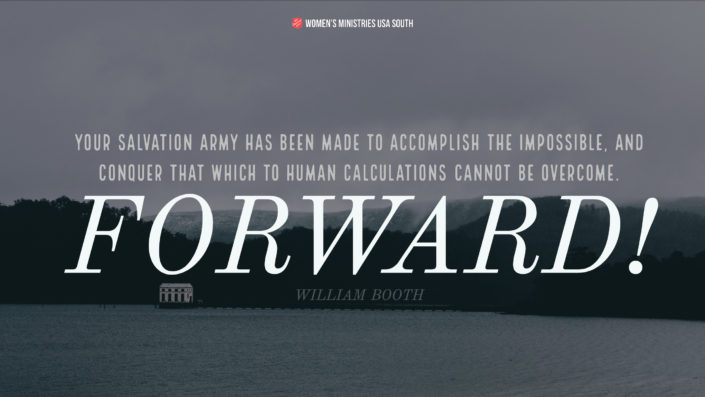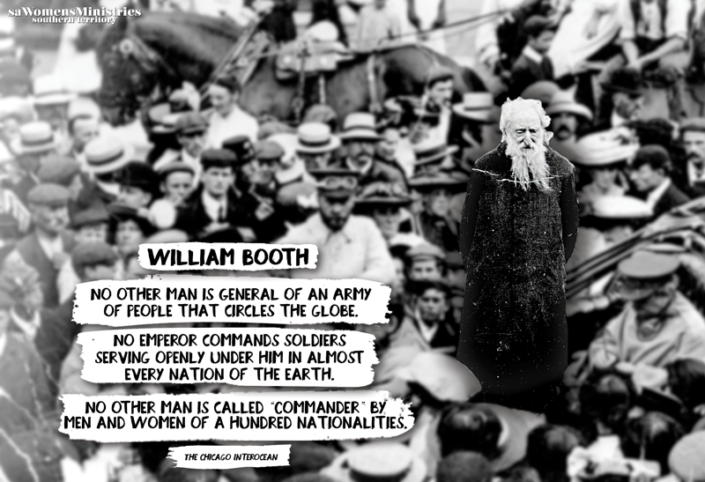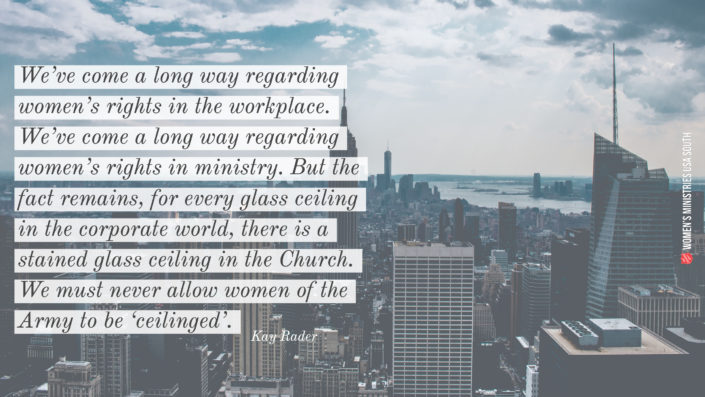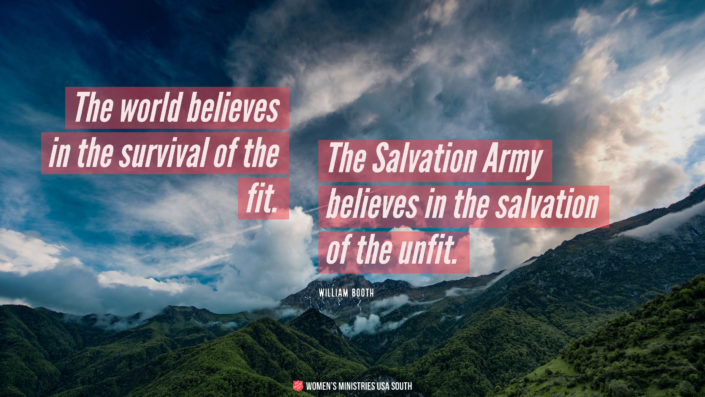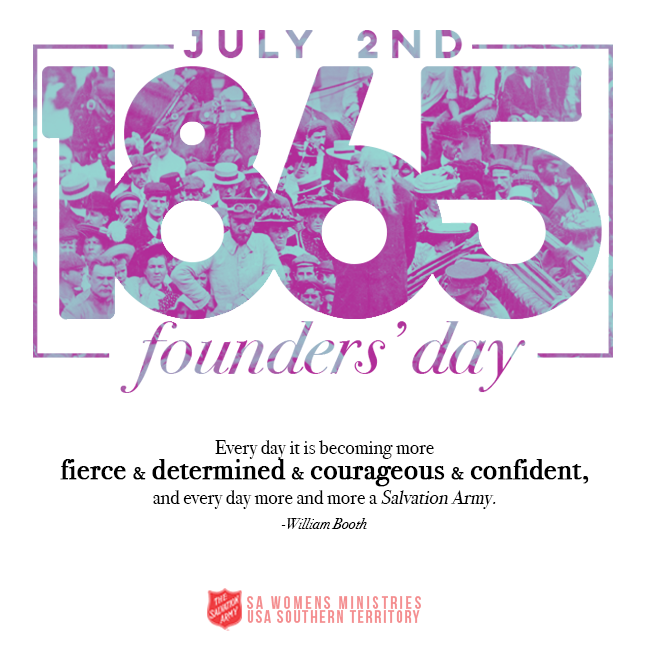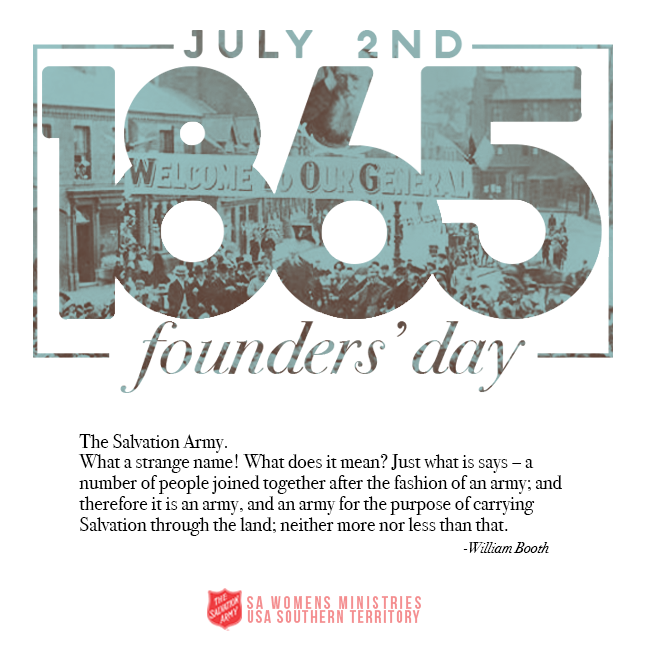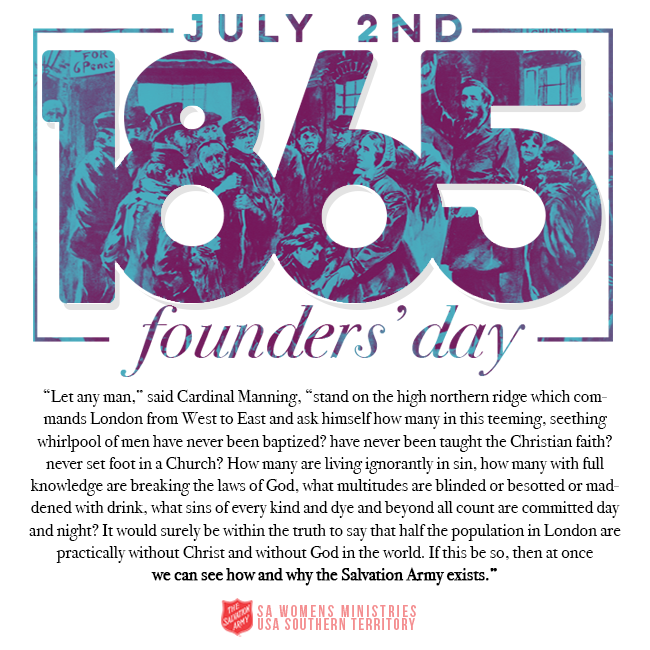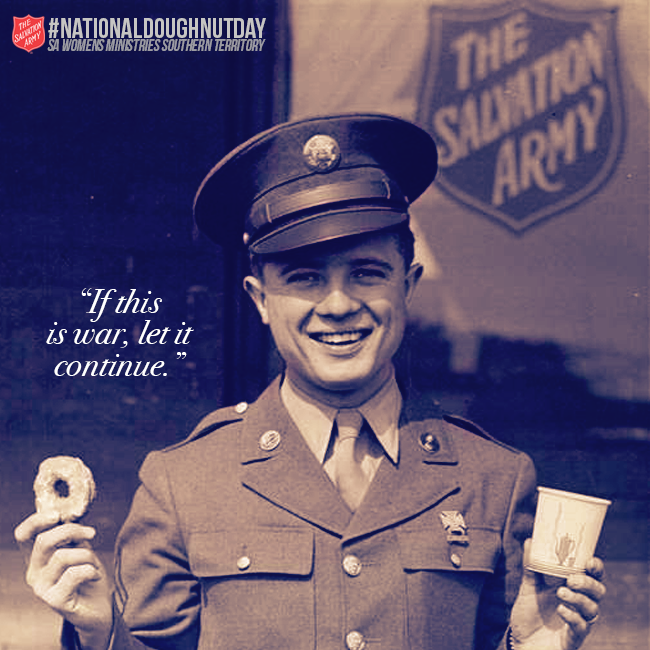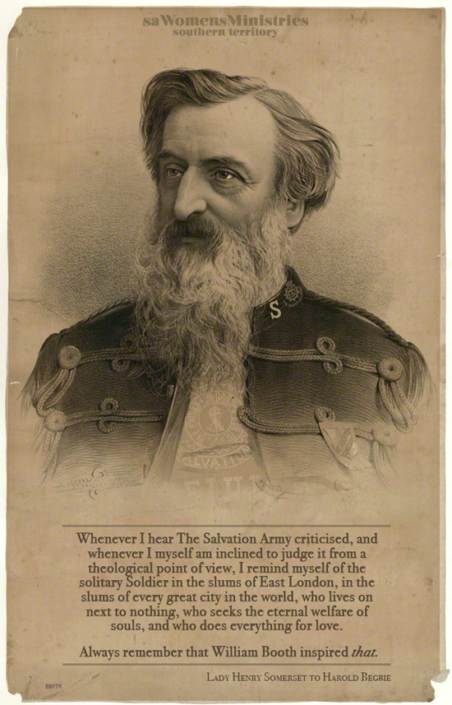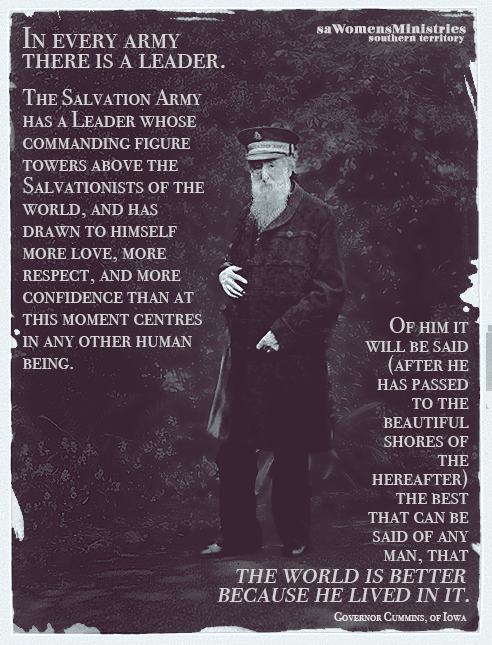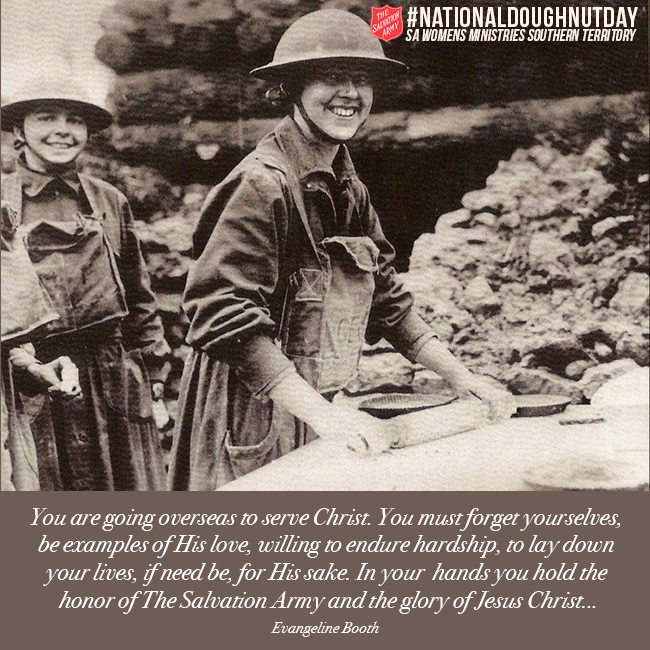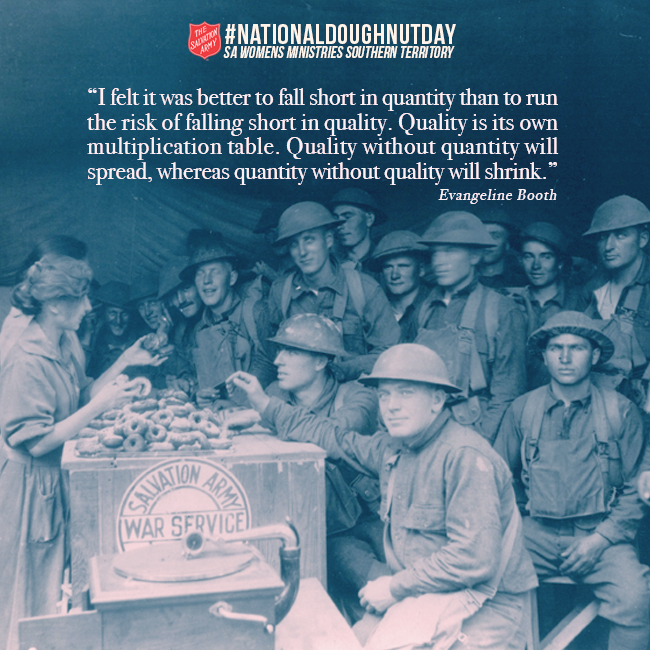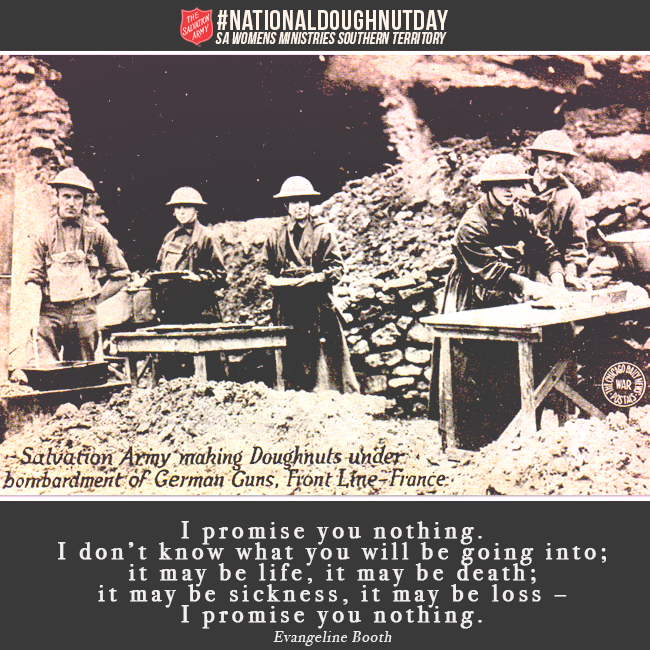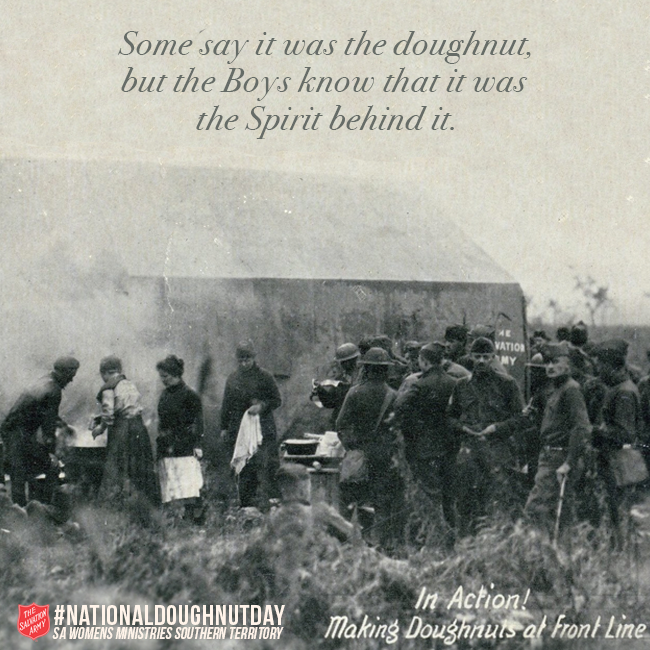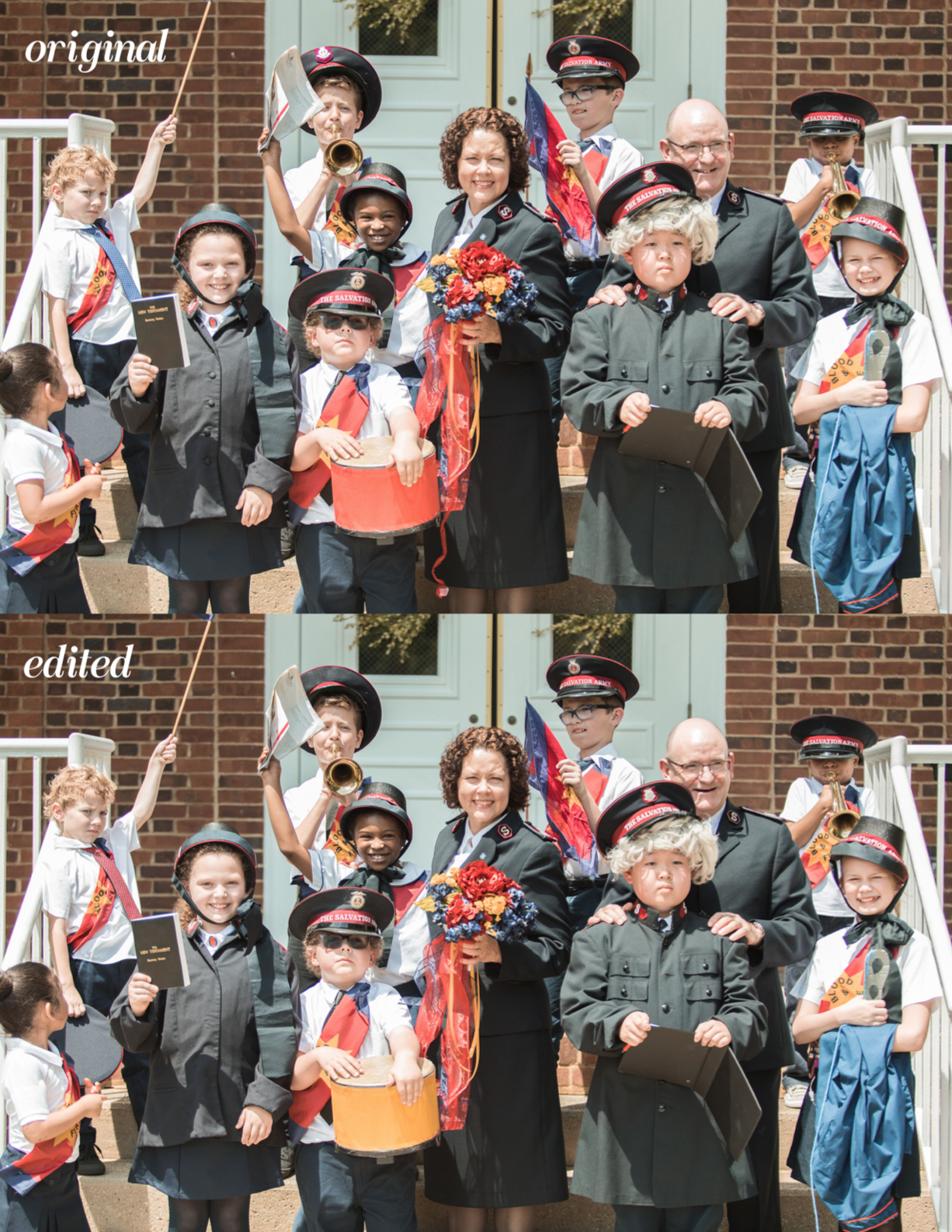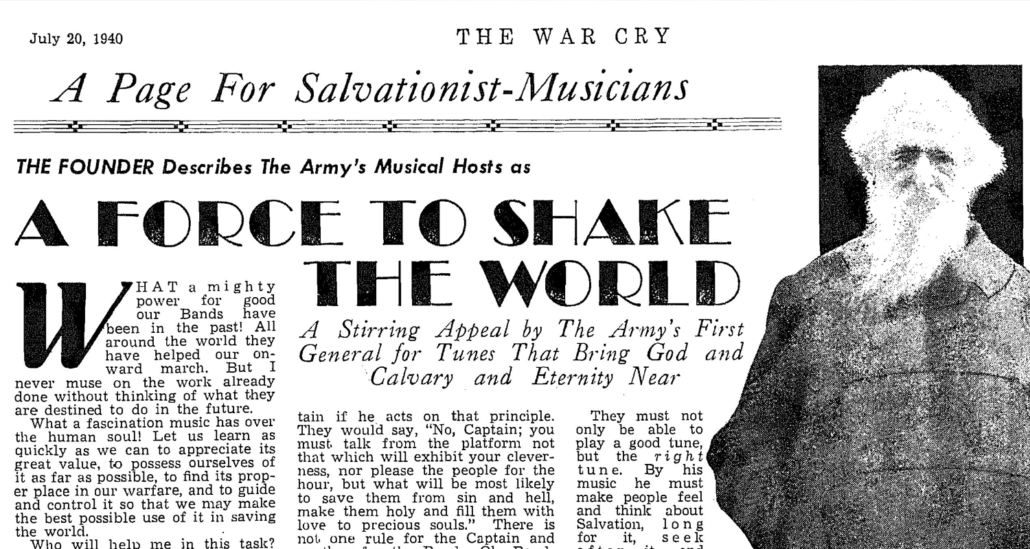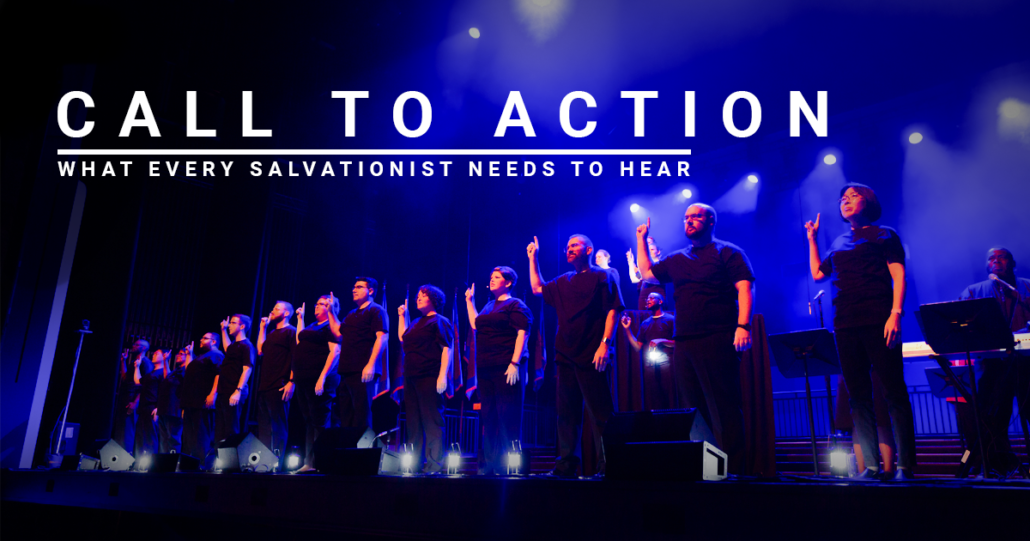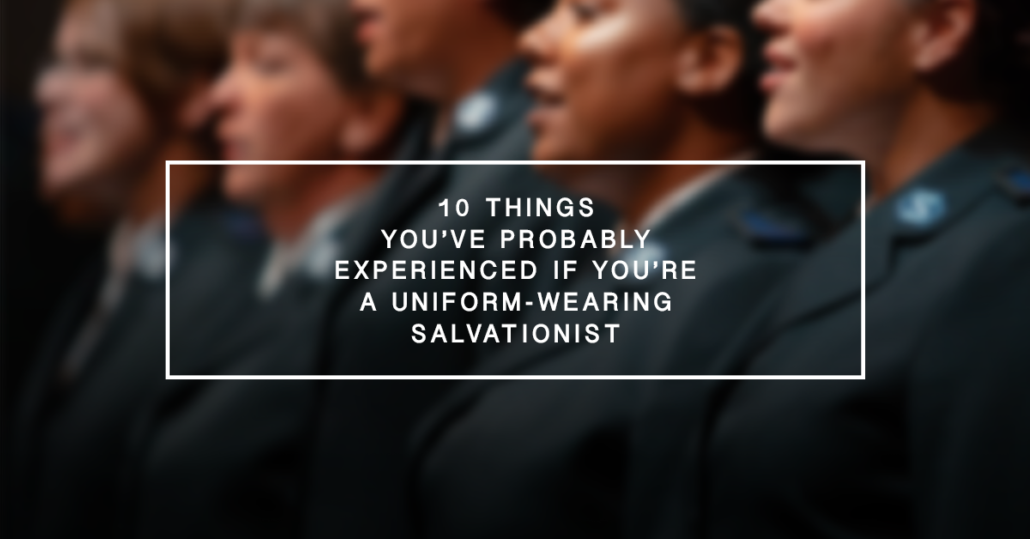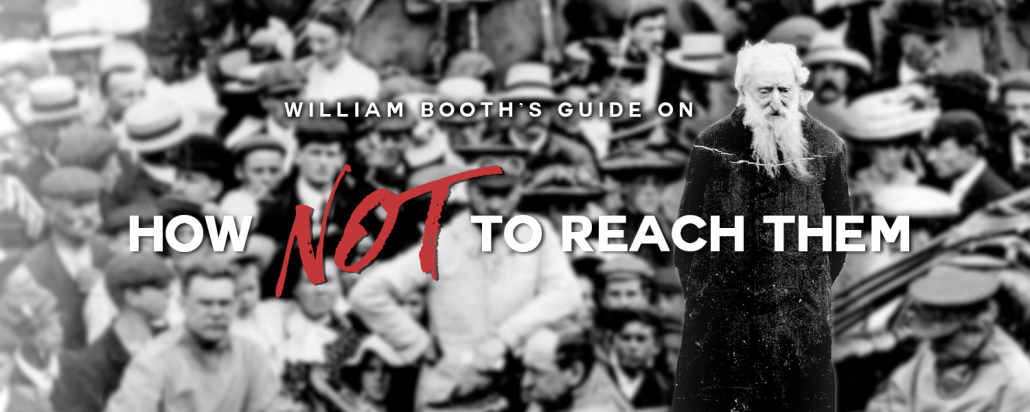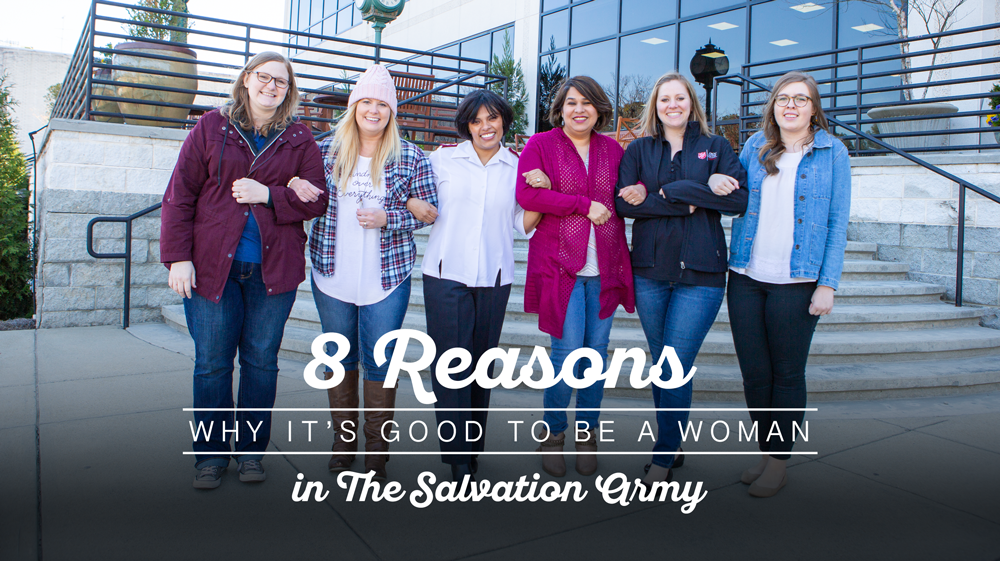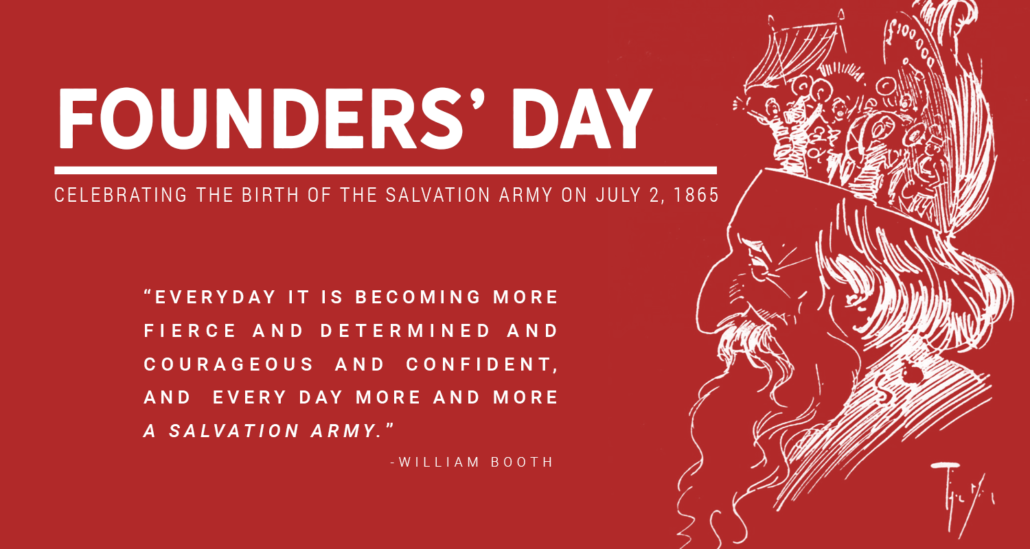

Interesting Reads

First in The Army Song Book and, doubtless, first in the hearts of Salvationists the world over, is the faith-lifting, soul-inspiring song, ‘O Boundless Salvation.’ As is well known, this song is a composition of The Army’s Founder and first General, William Booth. We give below some circumstances surrounding its composition, related by the late Commissioner T.H. Kitching, who for many years was associated with the Founder.
For reply, he handed me a number of loose sheets of paper covered with his handwriting, saying: “This: Read it and tell me what you think of it.” Each sheet contained four lines of verse – thought out, composed, and transcribed to paper during those long night hours. It was the song which is known to all Salvationists the world over – “O Boundless Salvation”.

My Friend Charlie, by Major Arthur Brown
Folks often ask why I’ve never aspired
To be General, or assistant at least.
Well, it happened one day, in a strange sort of way,
That my hopes of promotion all ceased.
‘Twas our very first married appointment,
The smallest the Army could boast;
The division itself was not all that big,
About sixteen square miles at the most.
But our divis’nal commander was happy,
For it helped him in his sort of way,
And over his desk hung his motto:
“You must get it done by today.”
He couldn’t stand letters or writing
Or forms or returns or that lot;
He insisted we TOOK our returns to him
To settle things there on the spot.
“I’ll be having your band in October”
Though he’d never asked me, for we’d none;
Or “Add up those columns of figures,
And see that the totals are done.”
The Majors rode in in their Daimlers,
The Captains went in on the bus;
But it wasn’t that easy for others –
Well, not for Lieutenants like us.
We were miles away from the office,
And I’d cycle there in the rain,
Stuff my “budget” into my coat pocket
And peddle back homewards again.
I’d ne’er see a soul to converse with,
They were filling in forms or at tea,
And so fully absorbed in their business
They never gave any to me.
But I must tell you now about Charlie –
I ought to have told you before –
A chimp who’d been part educated
By the man who was living next door.
Now Charlie was bright as a button,
The sort that you really could like;
He could juggle and balance and count up to six
And ride on a two-wheeler bike.
He sure loved his bike did our Charlie,
He rode it all over the park;
He’d a bell he would ring before knocking you down
And lights to light up after dark.
Well, one Thursday morning in summer,
When I’d just got my books to make sense,
I was ready to go to the office
When I chanced to look over the fence.
Poor Charlie was sitting dejected,
I’d ne’er seen the chimp look so grim.
I inquired from his owner what ailed him
And asked, ‘What’s the matter with him?’
“It’s his bike,” says our neighbor, “it’s been stolen,
Outside the chip shop, if you please.
He wants me to buy him another,
So he’s sulking now there, as you sees.”
And there on the spot I’d a brainwave,
It came like a bolt from the blue;
So brilliant I scarcely could credit;
I knew now just what I should do.
I beckoned to Charlie: “Come on, lad,”
He tried on my cap for a start;
With my uniform trousers and tunic
You just couldn’t tell us apart.
I gave him my bike and a satchel,
And careful directions as well;
He sped down the road like a rocket,
With hand signals, ringing his bell.
Well, of course, I was just a bit anxious,
A little uneasy, in case
They rumbled my scheme at headquarters
Of Charlie being sent in my place.
But there really was no need to worry,
For half-an-hour later, no more,
He sailed down the road with my budget
And brought it safe right to my door.
So that was the pattern thereafter;
Each Thursday in sunshine or rain,
He’d take my returns to the office
And bring back the budget again.
But one beautiful day in September,
I ne’er dreamed as he walked out the door
That I’d never again see my old faithful friend,
Or my bike – come to that – any more.
For the Brigadier down at “The Castle”
Was what they call “sick of the corps,”
And he’d just told the Colonel that morning
He was not stopping there any more.
The Colonel was almost demented,
And couldn’t think what he might do;
As I said, he liked “instant decisions,”
But now “instant options” were few.
For being the end of September,
The whole of the officer race
Was off on vacation to Butlins,
So he’d no one to put in his place.
Well, no one, that is, except Charlie,
Who swept through the door in a whiz;
He seized Charlie’s hand with emotion
And told him “The Castle” was his.
Since that day I’ve never seen Charlie,
Though he tackled the job with some zest.
He’s Commissioner now on some tropical isle
And I’m stuck down here in South West.

***From The War Romance of The Salvation Army***
Into the heavy shadows that swathe the feet of the tall buildings in West Fourteenth Street, New York, late in the evening there slipped a dark form. It was so carefully wrapped in a black cloak that it was difficult to tell among the other shadows whether it was man or woman, and immediately it became a part of the darkness that hovered close to the entrances along the way. It slid almost imperceptibly from shadow to shadow until it crouched flatly against the wall by the steps of an open door out of which streamed a wide band of light that flung itself across the pavement.
Down the street came two girls in poke bonnets and hurried in at the open door. The figure drew back and was motionless as they passed, then with a swift furtive glance in either direction a head came cautiously out from the shadow and darted a look after the two lassies, watched till they were out of sight, and the form slid into the doorway, winding about the turning like a serpent, as if the way were well planned, and slipped out of sight in a dark corner under the stairway… [eventually] darting out of its hiding place, and slipping noiselessly up the stairs as quietly as the shadow it imitated… up, up, up and up again, it darted, till it came to the very top…
From under the dark cloak slid a hand with something in it. Silently it worked, swiftly, pouring a few drops here, a few drops there, of some colorless, odorless matter, smearing a spot on the stair railing, another across from it on the wall, a little on the floor beyond, a touch on the window seat at the end of the hall, some more on down the stairs.
On rubbered feet the fiend crept down; halting, listening, ever working rapidly, from floor to floor and back to the entrance way again. At last with a cautious glance around, a pause to rub a match skillfully over the woolen cloak, and to light a fuse in a hidden corner, he vanished out upon the street like the passing of a wraith, and was gone in the darkness.
Down in the dark corner the little spark brooded and smoldered. All was still in the great building, as the smoldering spark crept on and on over its little thread of existence to the climax.
But suddenly, it sprang to life! A flame leaped up like a great tongue licking its lips before the feast it was about to devour; and then it sprang as if it were human, to another spot not far away; and then to another, and on, and on up the stair rail, across to the wall, leaping, roaring, almost shouting as if in a fiendish glee. It flew to the top of the house and down again in a leap and the whole building was enveloped in a sheet of flame!
Some one gave the cry of FIRE! The night watchman darted to his box and sent in the alarm. Frightened girls in night attire crowded to their doors and gasping fell back for an instant in horror; then bravely obedient to their training dashed forth into the flame. Young men on other floors without a thought for themselves dropped into order automatically and worked like madmen to save everyone. The fire engines throbbed up almost immediately, but the building was doomed from the start and went like tinder. Only the fire drill in which they had constant almost daily practices saved those brave girls and boys from an awful death. Out upon the fire escapes in the bitter winter wind the girls crept down to safety, and one by one the young men followed. The young man who was fire sergeant counted his men and found them all present but one cadet. He darted back to find him, and that moment with a last roar of triumph the flames gave a final leap and the building collapsed, burying in a fiery grave two fine young heroes.
Afterward they said the building had been “smeared” or it never could have gone in a breath as it did. The miracle was that no more lives were lost.
So that was how the burning of the Salvation Army Training School occurred.
…There was also proof that the intention had been to destroy as well the great fireproof Salvation Army National Headquarters building adjoining the Training School.
A few days later a detective taking lunch in a small German restaurant on a side street overheard a conversation:
“Well, if we can’t burn them out we’ll blow up the building, and get that damn Commander, anyhow!”
…The Commander (Evangeline Booth) had stayed late at the Headquarters one evening to finish some important bit of work, and had given orders that she should not be interrupted. The great building was almost empty save for the night watchman, the elevator man, and one or two others.
She was hard at work when her secretary appeared to tell her that the elevator man said there were three ladies waiting downstairs to see her on some very important business. He had told them that she could not be disturbed but they insisted that they must see her, that she would wish it if she knew their business. He had come up to find out what he should answer them.
The Commander said she knew nothing about them and could not be interrupted now. They must be told to come again the next day.
The elevator man returned in a few minutes to say that the ladies insisted, and said they had a great gift for the Salvation Army, but must see the Commander at once and alone or the gift would be lost.
Quickly interested, the Commander gave orders that they should be brought up to her office, but just as they were about to enter, the secretary came in again with great excitement, begging that she would not see the visitors, as one of the men from downstairs had ‘phoned up to her that he did not like the appearance of the strangers; they seemed to be trying to talk in high strained voices, and they had very large feet. Maybe they were not women at all.
The Commander laughed at the idea, but finally yielded when another of her staff entered and begged her not to see strangers alone so late at night; and the callers were informed that they would have to return in the morning if they wished for an interview.
Immediately they became anything but ladylike in their manner, declaring that the Salvation Army did not deserve a gift and should have nothing from them. The elevator man’s suspicions were aroused. The ladies were attired in long automobiles cloaks, and close caps with large veils, and he studied them carefully as he carried them down to the street floor once more, following them to the outer door. He was surprised to find that no automobile awaited them outside. As they turned to walk down the street, he was sure he caught glimpse of a trouser leg from beneath one of the long cloaks, and with a stride he covered the space between the door and his elevator where was a telephone, and called up the police station. In a few moments more, the three “ladies” found themselves in custody, and proved to be three men well armed.
But when the Commander was told the truth about them she surprisingly said: “I’m sorry I didn’t see them. I’m sure they would have done me no harm and I might have done them some good.”
By William Booth
People walk about, eat and drink, talk and go through the ordinary duties of social life together, and yet have no real communion of spirit. Heart does not speak to heart. They are, in the truest sense, largely, if not altogether, alone in the world… We meet, sing, pray and testify together, but heart-union is too often sadly wanting. Yet a corps ought to be, to all intents and purposes, a real spiritual family. Every soldier on its roll should regard his comrades as brothers and sisters, not only in name but in practice.Instead of this, with some Salvationists there is a great deal of the cold, stand-off spirit, and with a great many much of that wretched indifference which is so painful to see, and more painful still to endure. This is especially so in the big cities; while the brotherhood and the sisterhood so often talked about by many so-called Christian people is little more than a name. This is a great pity, and we can never tell how much we lose by it, or how much suffering it entails upon many good and faithful souls who are shy and strange… Let me mention two or three reasons why Salvationists should cherish a really brotherly and affectionate disposition toward one another. The first reason is the personal pleasure which true friendliness imparts to all those who are subjects of it. The joy flowing out of genuine friendship cannot very well be over-estimated. To know that there are comrades who really feel affectionately toward you, whose eyes sparkles, whose hearts beat warmly, and whose hands are stretched out when you meet them, creates pleasure not only while you are with them, but when you think about them afterward. Yes! Friendship is a treasure indeed, and every Salvationist ought to be able not only to find such treasure in his corps, but be able to supply a share of the priceless blessing to others in return. The Salvationist should cultivate this friendly spirit because of the comfort it will bring to him, and also to others, in the everyday sorrows and trials of life. We all have our hardships. Some have bitter fights with poverty, affliction and misunderstandings; many have to follow their loved ones to an early grave; and all of us, in one form or another, will have to face the last enemy, which is death. In these trying hours, how welcome is the practical, loving friendship which soothes the wounded spirit, cheers the despairing heart and smooths the dying pillow! Then, how marvelous is the influence for good which this friendly spirit exerts on the ungodly world around us! Nothing strikes the stranger who finds himself within our walls more forcibly, or affects him more favorably, than the loving faces and friendly intercourse of the soldiers who surround him on every side, no matter how small the hall or how great the struggle in which the corps is engaged. He is constrained to say, ‘see how these Salvationists love one another!’ Oh, that this spirit of loving comradeship were more prevalent and powerful than it is! Let us cultivate it, my comrades… Salvationists should be at more trouble to acquaint themselves with one another. While it is true that some of our people are bold enough to salute comrades who may otherwise be perfect strangers, others are too timid to speak to, or even look at, much less shake hands with, comrades with whom they have had some acquaintance for years gone by. What is the reason for this shy separateness? I should say that it arises very largely from soldiers being too much taken up with themselves, and being too little concerned with the happiness and welfare of those around them. My comrades, I recommend you, so far as possible, to be careless of what your friends may think about you, or your looks, or your words; speak up and speak out in a loving way to all with whom you come in contact. Make yourselves at home and show yourselves friendly. You ought especially to act after this fashion with the new converts, who are only too often caressed one night and passed coldly by the night after. Hunt them out in the meetings or, better still, fetch them from their homes. Why should you leave this duty altogether to your officers? It is beyond question their place to search the converts out, but every Salvationist out to take his share in so important a business… Then I further advise that you should trust your comrades. Do not everlastingly suspect them of unworthy motives in their sayings and doings. Put the best construction you can upon their actions. Where you consider they are wrong, as them for an explanation. Where you imagine there has been some unfriendly action, give them a chance of setting themselves right with you. Do not expect perfection all at once. Give them time. If you find them lacking in the performance of what you consider to be their duty, seek by your own prayers, counsel and example to supply their need. Look out for opportunities of befriending your comrades. This is not only your duty, but your privilege. If a man would have friends, he must show himself friendly. Bless your comrades, and your comrades will bless you.
Spot the Differences!
Can you spot the 14 differences in these two photos? Click on the image and give it a try!
Check out the answer key here!
“SALVATION MUSIC is the MUSIC FOR ME”
Click the image to read William Booth’s Guide for Bandsman and Bandmasters

